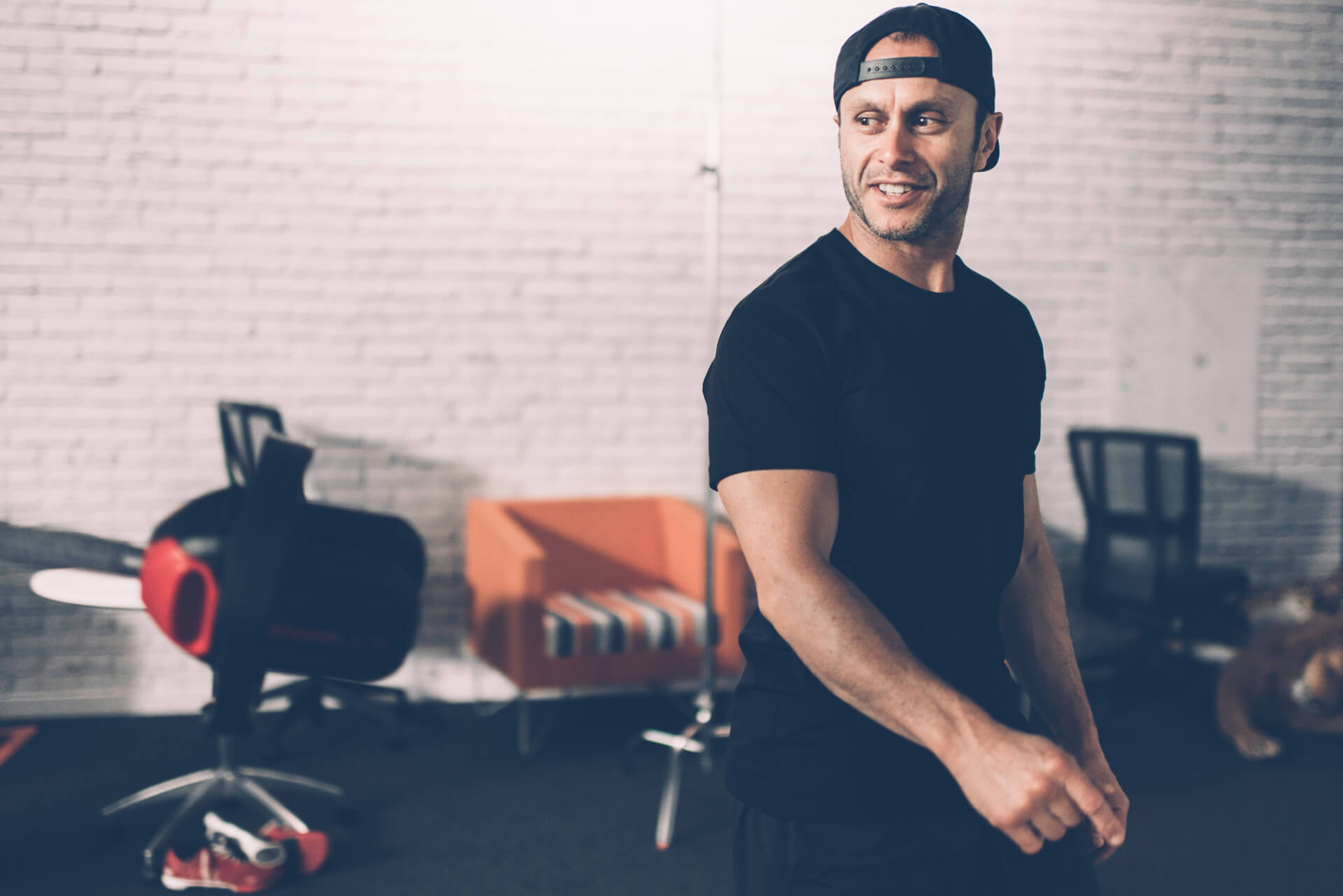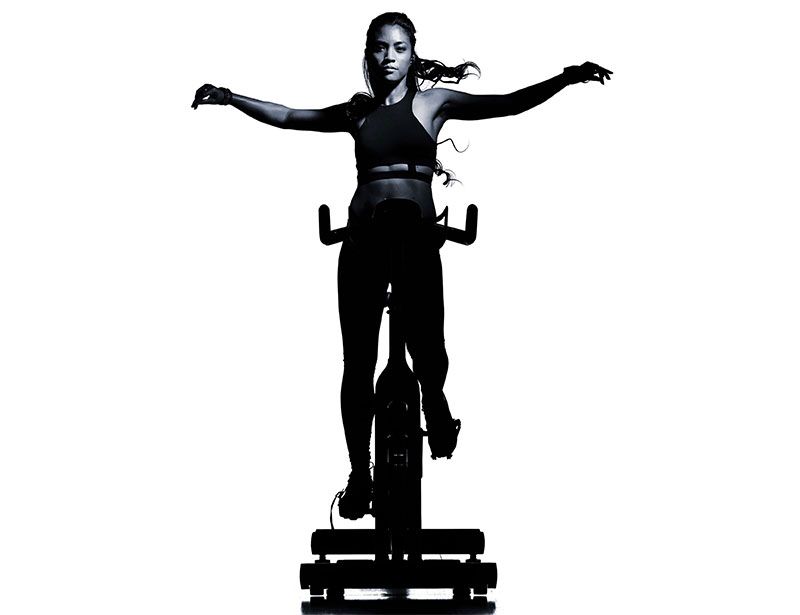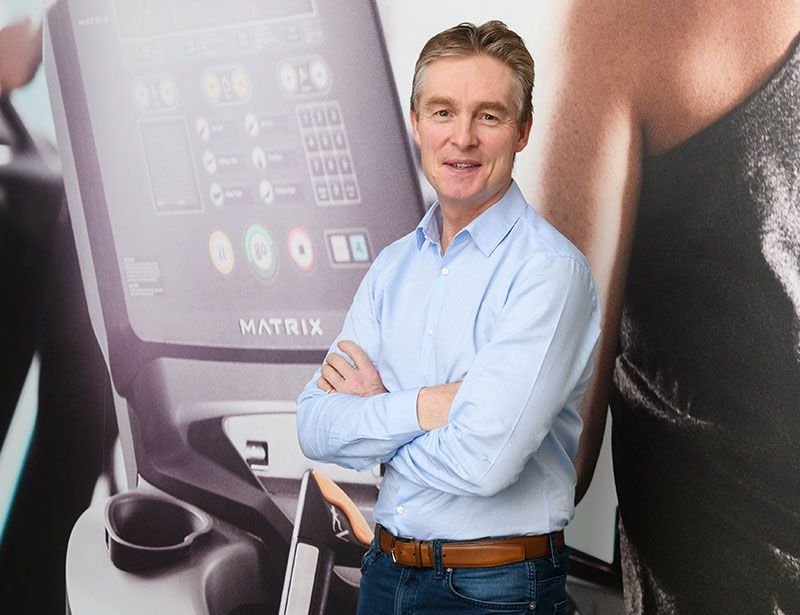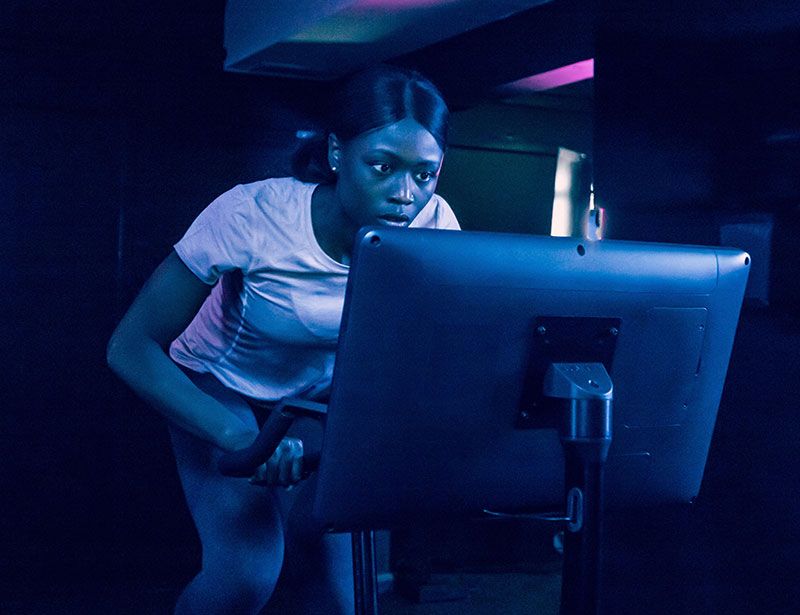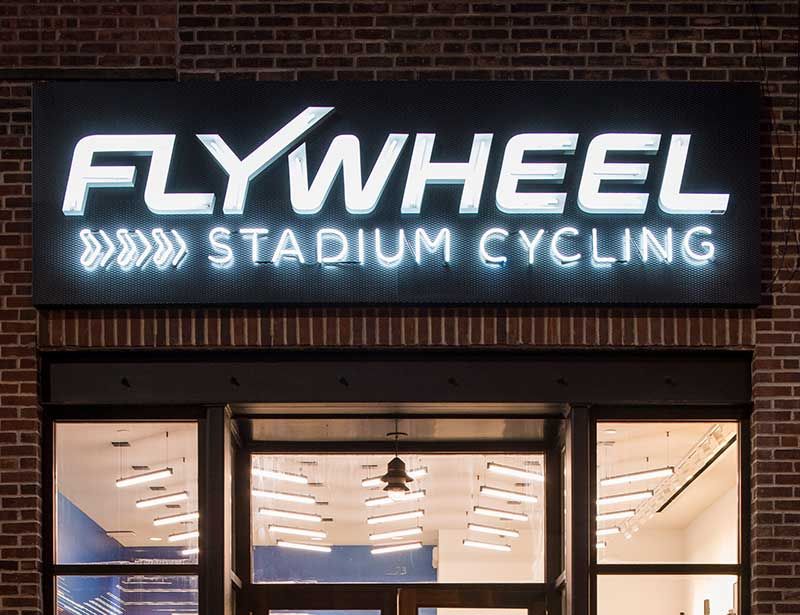Positive thinking in troubled times
And the fitness industry is feeling the effect, with clubs shuttered, major trade events postponed and people limiting their travel.
In these times of trouble, it is human nature to focus on the challenges. We are certainly feeling them, as I’m sure our readers are.
But in these pages, we try to remain optimistic and focused on the opportunities.
And there is much to feel optimistic about, with indoor cycling thriving around the world – witness the likes of Barry’s entering the sector – and RIDE HIGH celebrating a double-digit milestone: our 10th edition.
We’re marking this milestone with a must-read edition – one that’s filled with the infectious energy of our cover star SJ Aboboto, and that explores everything from Flywheel’s lawsuit with Peloton, to the explosion of wellness travel, to the secret formula behind helping riders keep their cool.
It’s an exciting moment for me personally. When I came up with the idea for this magazine in 2017, I wanted to help grow the entire indoor cycling sector by sharing ideas, stories, experiences, insights, inspiration – all for free. Yet even with this ambitious vision for the magazine, I had no idea RIDE HIGH would so quickly become a go-to title for business owners and indoor cycling enthusiasts alike.
I feel both proud and lucky to have been able to bring this wonderful magazine to reality, and I very much hope you enjoy this latest edition. With 2020 also marking the 21st birthday of our company, we at BODY BIKE have a lot to feel grateful for. If you haven’t yet subscribed to RIDE HIGH, you can do so – for free – on our website, where you can also view and download the magazine’s full archive www.ridehighmagazine.com
Finally, if you have any feedback or topics you’d like to see covered in the magazine, please drop us an email: info@ridehighmagazine.com
We look forward to hearing from you.
Uffe A. Olesen
CEO, BODY BIKE International A/S
Get the world grooving
“It all started when I was six years old, dancing to Kylie Minogue’s The Locomotion in our front room while watching Top of the Pops on TV,” explains Sarah-Jane (SJ) Aboboto, indoor cycling superstar and founder of GrooveCycle. “Little did I know that years later I would be dancing with Kylie on tour!”
She rewinds the story: “I always loved being active, playing rounders and netball and running the 100m when I was at school. But dance and performing were always my passion.
“I was essentially self-taught – my parents came to the UK from the Philippines with very little money, and there were other priorities that came before expensive dance school fees – but I had a natural skill and musicality and I just loved to dance.
“I loved making up my own dances too. I was very lucky to be at a school where the teachers were so supportive, investing their own time out of school hours to rehearse and prepare for shows. By the age of 11, I was choreographing all the shows; you normally had to be in year 11 to be allowed to do that.
“The thing is, I’ve always been able to not only dance myself, but to direct others in a way that they can dance too.”
An unexpected journey
She continues: “All that said, when I left school, I went to work at Heathrow and on the Heathrow Express for a couple of years. I was on the verge of applying to be a train driver when, aged 21, I went to an open audition to be one of Kylie’s dancers. There were hundreds of girls there, and four places up for grabs, and I got one of them. I was with her for about a year and a half, doing things like Top of the Pops and her European tour. I learned so much, really training on the job.
I choreographed the opening of the Rolling Stones’ 50th anniversary concert
“After that, I danced on-stage at awards ceremonies – for the likes of Gwen Stefani and Kanye West – before properly getting into the choreography side of things. I choreographed the opening of the Rolling Stones’ 50th anniversary concert at the O2 London, and I worked with the creative director to choreograph the 2012 Olympics and Paralympics closing ceremonies, teaching the moves to the army of volunteers.
“Since then, I’ve done quite a lot of mass movement choreography – for Buckingham Palace, for example, and the UEFA Champions League. For me, everyone can dance. If your body responds when you hear music, that’s dancing. That’s the message I focus on when it comes to mass choreography.
“The Olympics had an extra layer of challenge, in that the volunteers were of course all putting in their time for free – and we’re talking months of preparation. I really had to earn their support, make it fun for them, make it achievable whatever their age or dance ability. That was a great lesson for me.”
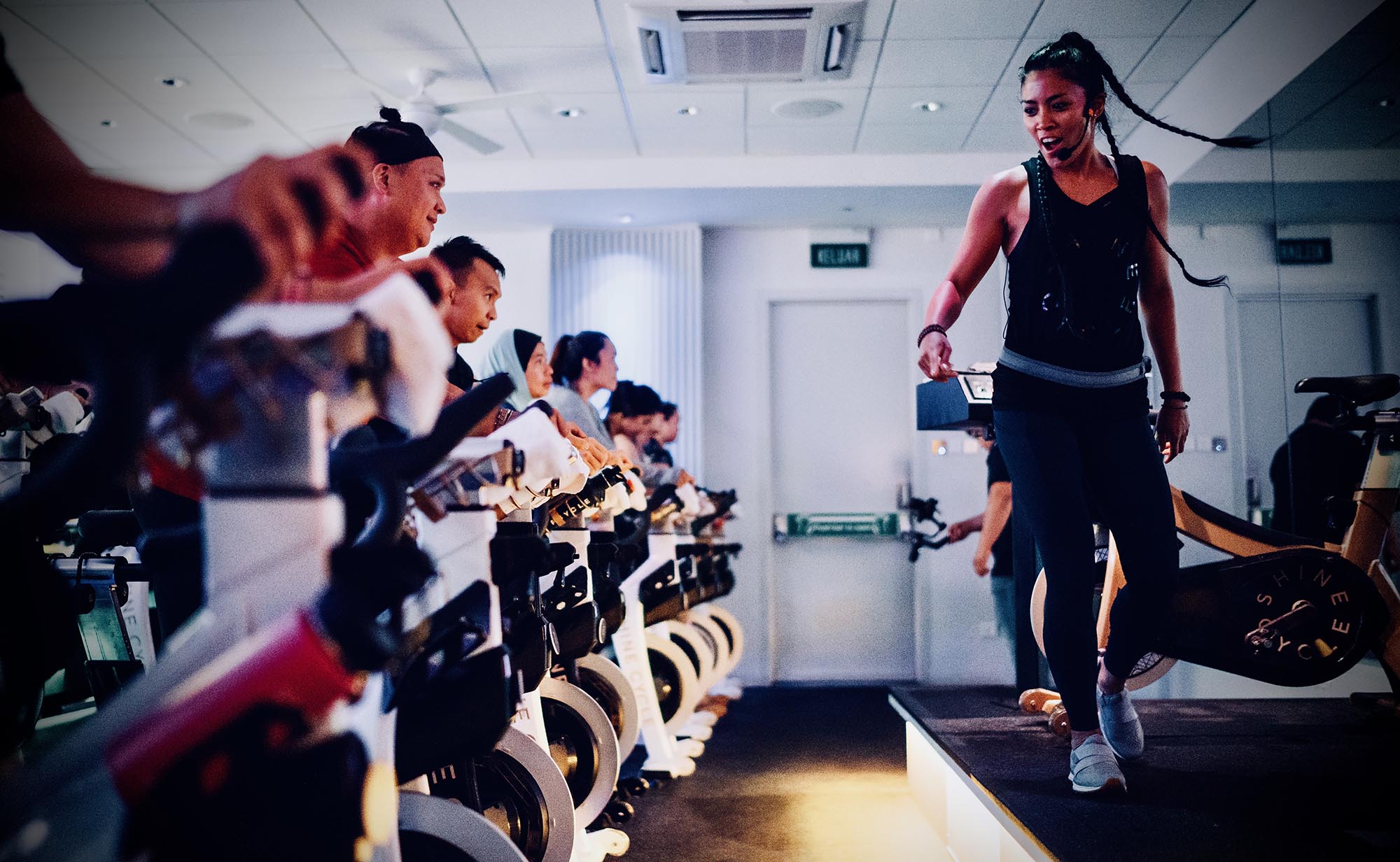 Finding a groove
Finding a groove
SJ continues: “So I guess my journey has taken me from dance, through choreography to movement; the last time I danced myself was in the Olympics closing ceremony. And it has brought me to an unexpected place: indoor cycling.
I don’t even miss dance because in a way I still do it. I just do it on a bike now!
“It’s funny because, as a professional dancer, I always said you would never see me in a gym or on an indoor bike. I danced for the love of it; fitness was just a by-product. I never wanted to have to try to get fit – that looked like a lot of hard work and not much fun!
“But in fact, indoor cycling has all the energy and musicality of dance – or at least, it can have, and that’s the way I approach it. I don’t even miss dance because in a way I still do it. I just do it on a bike now!”
She continues: “I first fell in love with indoor cycling about six or seven years ago, when I was introduced to SoulCycle in NYC. I loved the energy of the instructors: how engaging they were, how on-point with the music, how they took you on an emotional journey. Of course, the lighting and sound systems were great too, but having an awesome room isn’t enough – it’s the energy of the instructor that will always make or break a cycling studio.
“So, this is where my indoor cycling story began, and it soon led to me creating GrooveCycle – a dance-based cycling class that I guess is a bit like Zumba on a bike, in that it’s fun and opens the audience up to non-cyclists.
“About five years ago, I started renting the 90-bike studio at what was then The Reebok Sports Club in London’s Canary Wharf, now The Third Space, to run classes under my GrooveCycle brand. The studio had mirrors, so that was a big tick in the box: mirrors are important for my classes, because you need to see yourself moving alongside everyone else. It gives you real body awareness, not to mention a great energy boost.
“However, back then the studio had no lighting, so I would turn up to each class with my own lighting in a suitcase – five lights and five extension leads – which I would control via remote control: red when I wanted people to push harder, yellow when I wanted them to reflect, circulating all the colours when I wanted them to let go.
“And people did let go. There’s always a perception, especially in areas like Canary Wharf in the high-pressured environment of the City, that people are very serious. My experience though: if you give people an opportunity to let go and express themselves, they will.
“We were doing some quite new stuff, with upper body movements and choreography on a bike – bear in mind that SoulCycle was nowhere near the brand it is now, and if I recall correctly both Psycle and Boom Cycle had opened just one studio each – but people kept coming back. They liked what we were doing. The classes were open to non-members as well as members and were very popular. We were doing seven or eight classes a week – me, plus other instructors I trained – and they were full.
“We had two styles of class: Groove was a bit SoulCycle-esque, but with more groove to it; and GrooveCycle Dance had real choreography going on. But it was all accessible to everyone, and a big part of that was the tempo. My view is you can’t go too fast: it makes it too hard to follow and people’s technique falls apart, plus you can find your groove better at a slower cadence.
“I generally aim for about three-quarters of our classes to be no more than 65–90 RPM, and when we’re adding more choreography we’re riding at the lower end of that range. We then work at a higher resistance for a good workout.”
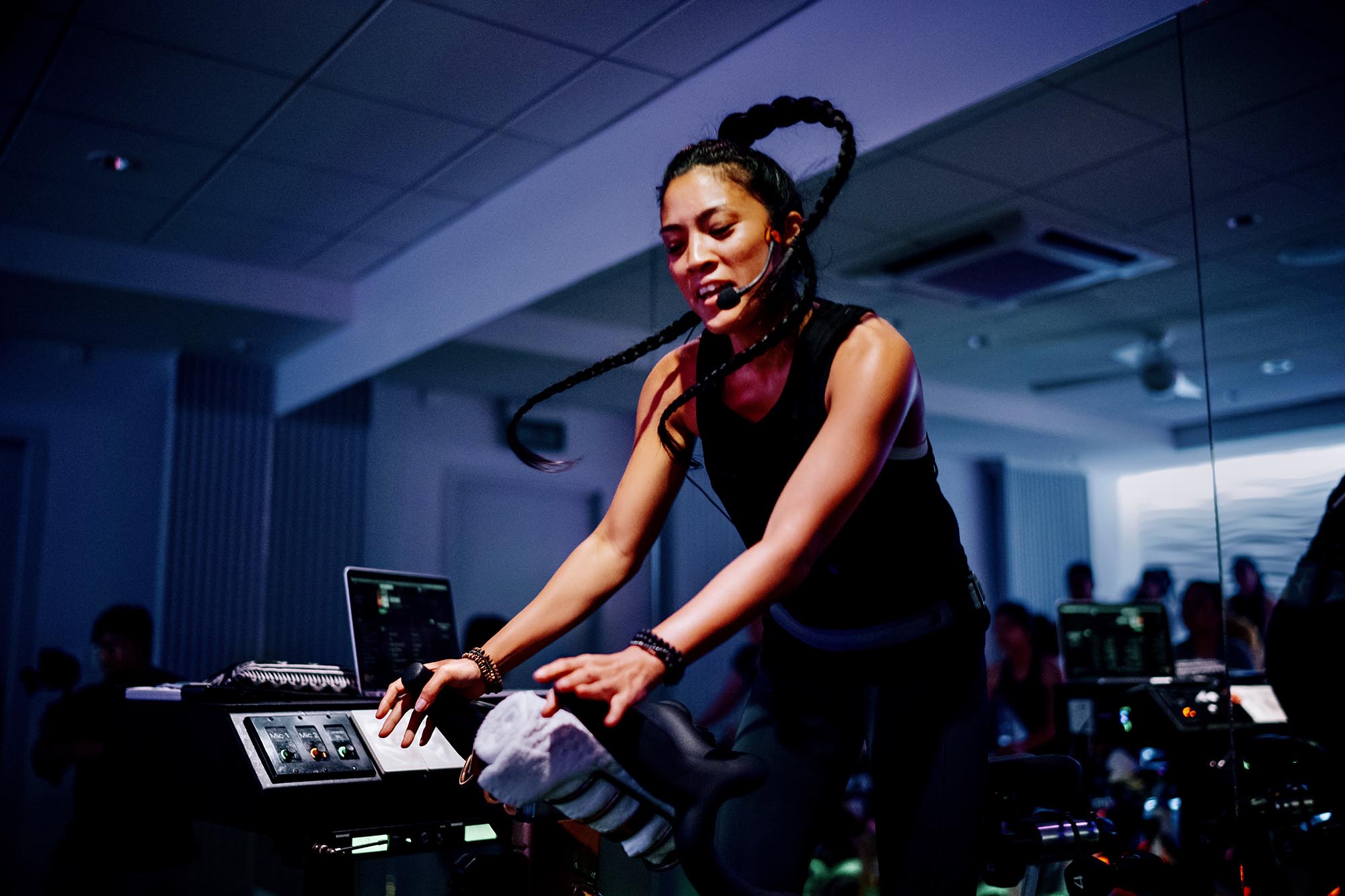 Life’s twists & turns
Life’s twists & turns
She continues: “The logical next step might have been to have taken that success and open my own GrooveCycle studio, but that’s incredibly expensive to do – and equally important, that ended up simply not being the route life decided to take me.
IT TAKES A LOT TO TRAIN SOMEONE UP AS AN INSTRUCTOR WITH ALL THE ELEMENTS IN OuR CLASSeS
“I became ill a couple of years ago – I just wasn’t getting any balance in my life – and I took a step back from things for the best part of a year. I’m back in the saddle again now, but for now I just run one GrooveCycle class each week, still in rented studio space. That in itself is a challenging model: you never get peak slots, because clubs have their own signature classes they want to run at peak times, and it’s hard to protect your programme and your brand. But I do enjoy it and I will look to scale it up again in the future.
“That may even involve me finally opening my own studio, although if I do, it might simply be a space where I and a few selected instructors can record classes to release online – a way of scaling and at the same time controlling the quality. It takes a lot to train someone up as an instructor, especially with all the elements in our classes, and in any case, online is a very popular way for people to consume fitness now.
“As part of that, I’m thinking about creating shorter – five- to 15-minute – programmes to make it even easier for people to make the shift from inactivity to activity.”
But SJ hasn’t ruled out expanding the live offering. “I’m considering launching GrooveCycle courses to train instructors. Alternatively, I might design off-the-shelf programmes – Les Mills-style – that instructors can take and use, complete with playlists and choreography. We’ll see. I always have so many things I want to do, but I would love to be able to take the joy of GrooveCycle out to more people.”
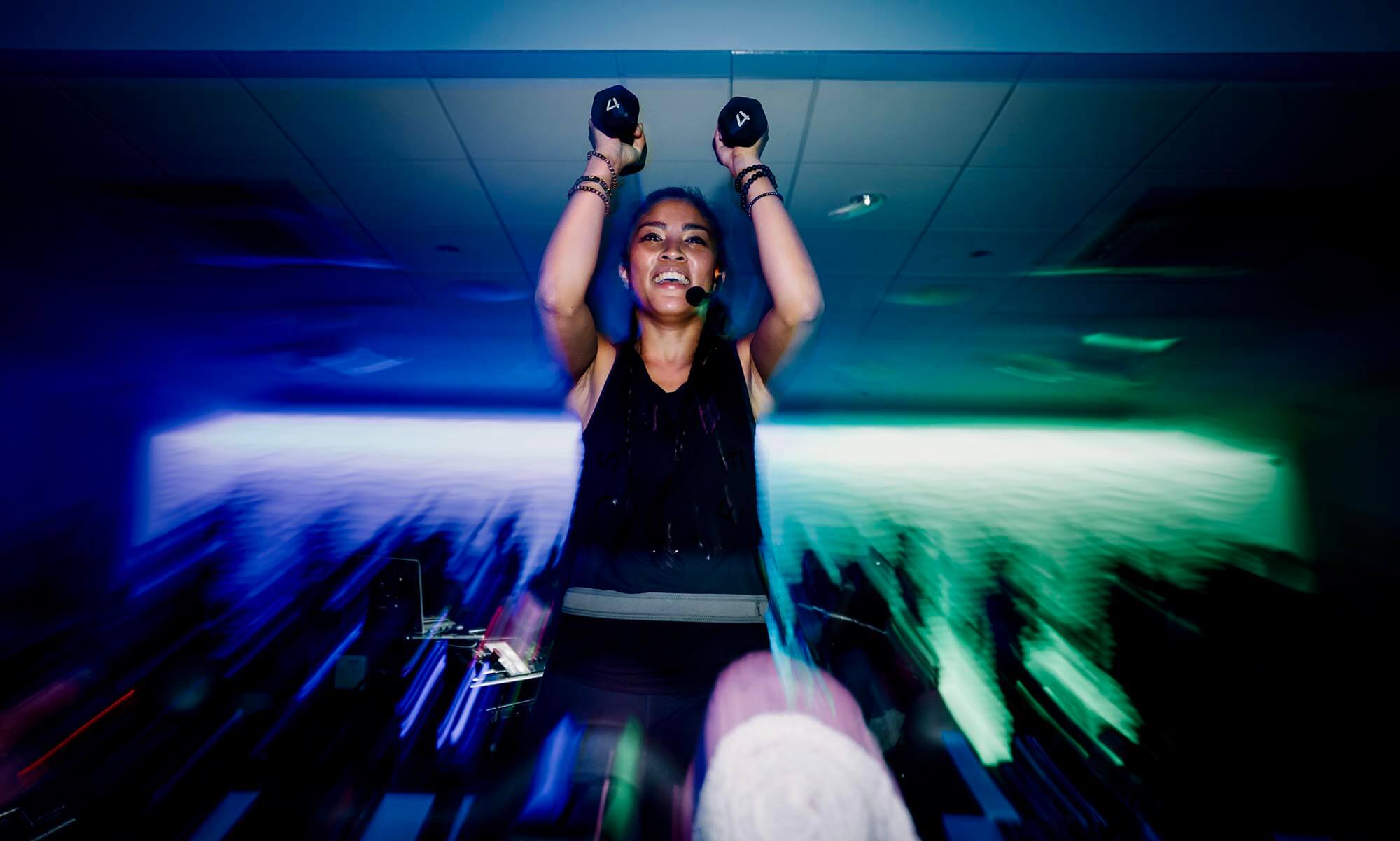 Love what you do
Love what you do
The enthusiasm flows, undiluted, as SJ continues her story: “In the meantime, over the last year or so, I’ve found myself getting more and more into consulting and education. I’m a master educator for Stages, for example, coaching instructors in its Beats training. And I’m consultant and head trainer for David Lloyd Clubs as it rolls out its Rhythm and Cyclone concepts across its estate. I also created the cycling programming for Another Space, before Third Space sold those studios, and I consult for a number of other boutique operators.
“Throughout that process, I’ve worked with a lot of people from very different backgrounds, from fitness instructors who know cycling but who aren’t necessarily natural performers, through to dancers who may never have been on a bike before but who have musicality and performance running through their veins. I coached one cycling newcomer, Leanne, who has gone on to become one of Peloton’s main London instructors. Meanwhile, for those coming from more of a fitness background, I’ll work with them on musicality – teaching them how to select music that creates the right energy, and how to then work with that music to get people to respond in the way they want.
purists may not like my style of programming, but as Long as it’s safe, I think it’s good to offer a fun alternative
“Ultimately, I believe it can all be coached, with one caveat. You have to genuinely love cycling and love helping other people. You have to want to connect and find the best in each and every individual in the room. Being an indoor cycling instructor isn’t about being a one-(wo)man band. You have to love every aspect of it, and that can’t be faked. You have to bring real energy and authenticity to the room.
“My personal mission is to get the world grooving – letting go, having fun, enjoying life. Yes, also working out, but under no pressure to do it any way other than your own. It’s about having a good time and leaving the room with a smile on your face. Cycling purists may not like my style of programming, but for me, as long as it’s safe, I think it’s good to offer people a fun alternative. It’s certainly a way to broaden the audience and get more people moving.
“And if you want to challenge me on results, that’s OK too. We do give people a really good workout. But equally my view is this: if someone who originally turned up to my class tense and stiff and shy gets to a point where they’ve let go, have more confidence, are enjoying movement and leave class happy – quite honestly, that’s the sort of progress and results I like to see.”
Humphrey Cobbold
PureGym operates in the budget sector, but a few years ago you launched a cycling boutique. Why?
Being quite honest, I think we were slightly seduced by the boutique sector. We were all seeing the success of brands like SoulCycle, and PureGym had a US investor at the time who was very interested in that. Allied to that, our founder and chair Peter Roberts felt there were lots of property opportunities for reasonably priced 6,000–7,000sq ft sites in London.
This was also a time when, although I certainly wouldn’t say we were mounting up on our own hubris, we were perhaps a bit flushed with the success of PureGym. I had recently joined the company, we had acquired LA fitness in the UK, the business was developing well… And as I say, we could see the beginnings of what was happening in the boutique sector. So in January 2016, we decided to test the waters of this emerging sector for ourselves, launching cycling boutique Pure Ride in the Moorgate area of London, UK.
How did Pure Ride fare?
It was a bit of a reality check, although I don’t regret it for one minute. It was a relatively low-cost lesson in sticking to what we were good at: recognising what we couldn’t do and respecting what we could.
In fact, more accurately, it’s not that we couldn’t do it: we could potentially have grown the Pure Ride brand to six to 10 sites in London, which as boutiques go would have been a significant portfolio. It was more a question of whether it was worth it for us. Even then, we had around 150 other clubs to run and about 40 new locations opening each year. That one Pure Ride site was taking up a disproportionate amount of our management team’s time.
Because running a successful boutique is a lot harder than it looks on the surface and a lot harder than even we – as a subscription- based budget operator coming in to this new market – expected.
Cost of acquisition and retention is very high in the boutique segment. Where at PureGym, someone who’s paying us membership now will typically continue to pay us membership for another six to eight months, with Pure Ride we effectively had to sell each seat in each class on a one-off basis. Very few people would buy monthly packages; they would pay per class for their favourite instructor – and those instructors commanded high fees. Yet people are also fickle. Favourite instructors or not, they’ll go where the offers are. That’s a tough model.
Added to that was the power of the aggregators, which is vitally important to understand in an expired inventory market like this – by which I mean, the moment a class starts, the seats in it no longer hold any value. If you aren’t careful, the aggregators begin to control the market – and the pricing of your product. We found we could either have some yield and empty-ish classes, or we could use ClassPass and have much fuller classes but suffer a material decline in yield. You can’t let yourself be overly reliant on the aggregators.
The fit-out was also more expensive than we expected, because it isn’t just about front-of-house ambience. It’s about back-of-house too, ensuring there are enough showers and hot water to get people moving through quickly at peak times, for example.
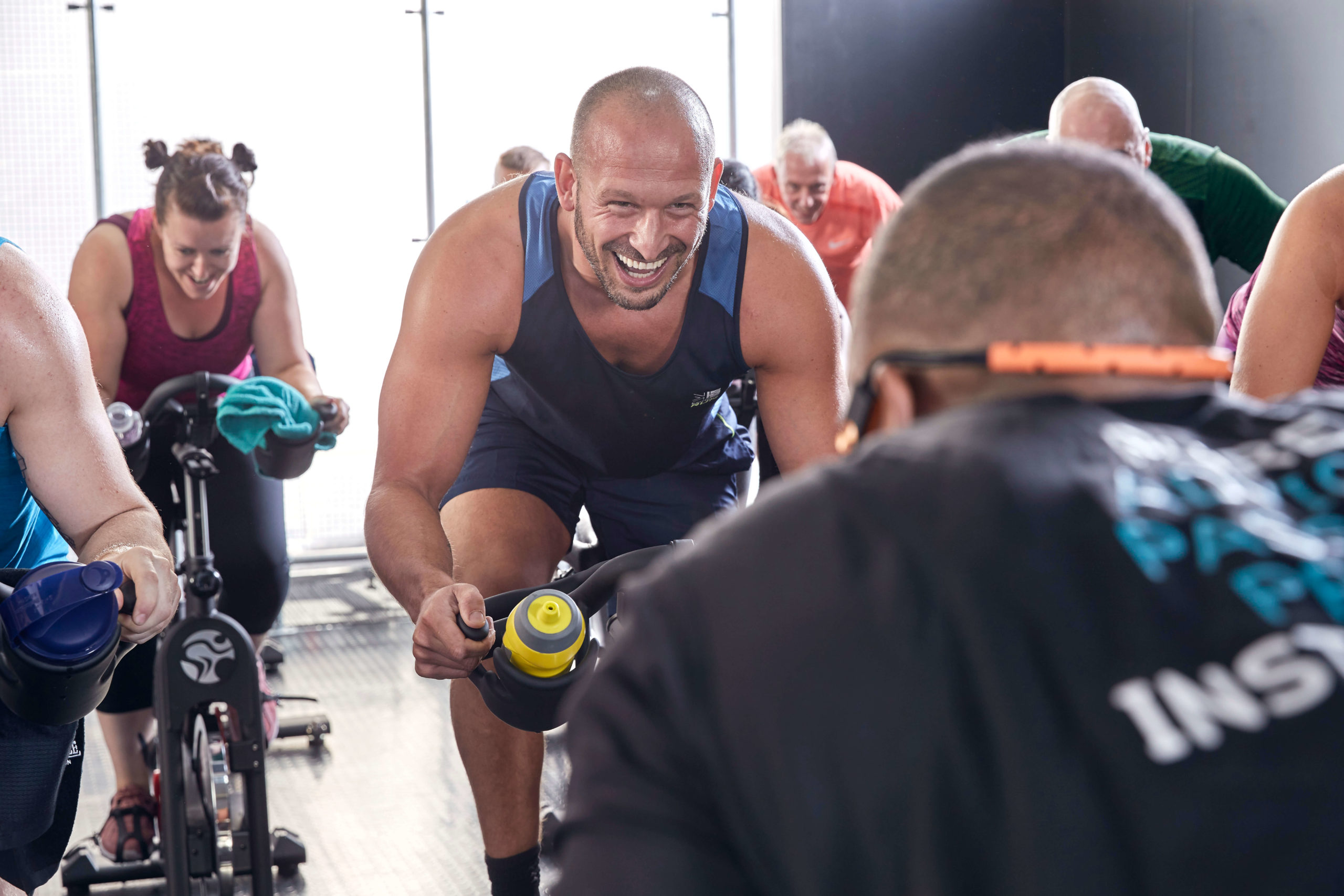
Cycling legend Sir Chris Hoy (front right) is an ambassador for PureGymCompounding all of this, there wasn’t actually the vast surplus of 6,000–7,000sq ft property we had thought, and the sites that were available were getting bid up quite strongly in price as competition grew and landlords became savvier to the income-generating potential of these studios.
Of course, these challenges weren’t specific to Pure Ride. These are the challenges facing the whole boutique sector, and all credit to those who make it work. It just wasn’t the right move for us, so we ended up selling our studio to Digme Fitness. I’m happy to say it seems to be working for them in a way that it didn’t for us.
THE UNiTED STATES IS TOO BIG A MARKET TO IGNORE.
We’ll open a couple ofsites in the us this year
So, your focus now is exclusively on PureGym?
Our focus is on PureGym as part of a multi-brand group, because we’ve just acquired Fitness World to become the second largest health club operator in Europe. That brand is so strong in its home territory of Denmark – where 10 per cent of the entire Danish population, and 45 per cent of all health club members, are members of Fitness World – that at this stage I really can’t see us changing the brand there.
Meanwhile, PureGym remains the UK’s largest operator – we’ll have reached around 275 UK clubs by the end of April 2020 – and I see tremendous opportunity to continue our growth. That’s been boosted by our new formats, including smaller footprint clubs which are allowing us to go into many more locations: we can now build PureGyms in sites ranging from 6,000–26,000sq ft. We opened 41 UK clubs in 2019 and will open even more in 2020, and long term I see scope for around 500 locations across the UK. So really, we’re only about halfway there with this market.
We’ll also do 20–30 major refurbishments in the UK in 2020, and all of these will involve significant upgrades: we’re heavily focused on evolving the product as we expand and refurb. That’s something the boutiques have certainly done: they’ve raised consumer expectations across the sector.
So, we’re looking at ways in which we can introduce a touch of the boutique feel into our sites, while at the same time keeping costs under control. Our view: if we can enhance the offering, delivering more for the same price, then people will reward us with a bit more loyalty. In some cases, we might be able to capture £1 extra on the membership, and that pays for a lot, but we aren’t doing it in order to put up prices and we certainly don’t want to drift in to the mid-market.
I’m not so unrealistic as to suggest people might now drive past another budget club to come to us – convenience remains a key driver – but they might drive a few kilometres past a premium club to come to us if they feel we’re offering value and meeting their needs.
We’re looking to introduce a touch of the boutique feel into our sites, while keeping costs under control
Can you tell us more about your international expansion plans?
We have aspirations to be a strong, ambitious player around the world, and with that goal in mind the US is too big a market to ignore. Our main financial backer, Leonard Green & Partners, is also US-based, and we can afford to invest a bit to dip our toe into the US water. So, we’ll open a couple of sites in the US this year and we’ll see how they go.
The dynamics will of course differ from state to state, and it will also be interesting to see how our highly-automated model will be received; even the low-cost operators in the US don’t do it quite like we do, with exclusively online joining for example. So, we’ll see how it goes. We’ll see how we stand up against the likes of Planet Fitness and the whole thing will be a voyage of discovery. If it works, great, we’ll roll out more sites. If it doesn’t… Just as I don’t regret giving Pure Ride a try, I just think we’d be mad not to try PureGym in the US.
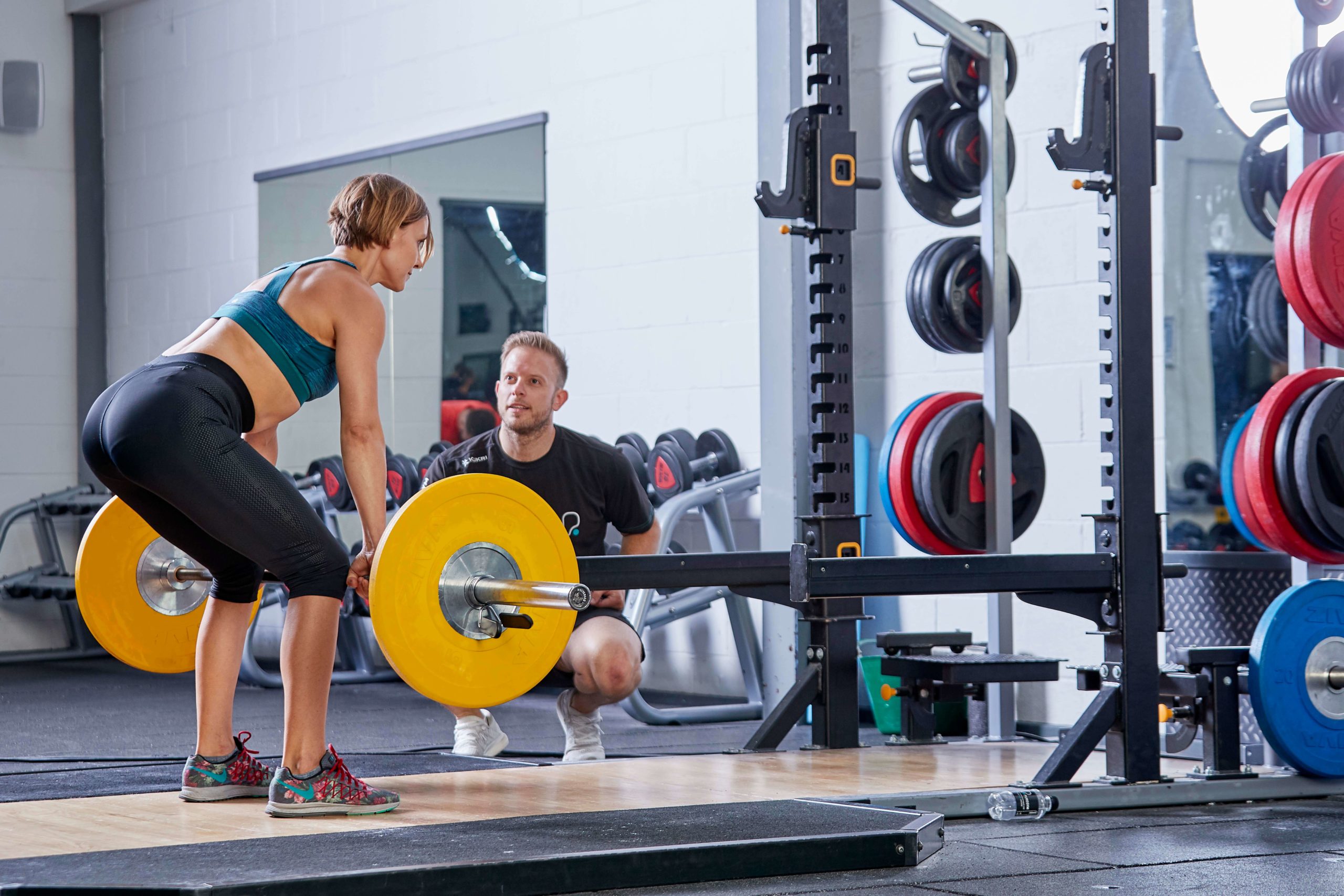
Then with Fitness World, I don’t think we’ll grow hugely in Denmark – a few clubs here and there, but that market is about 90 per cent built out and we have an enviably strong position within that. However, Fitness World acquired BaseFit in Switzerland not long ago – a business we had looked at ourselves – and it also has an embryonic position in Poland, so both those markets now offer us significant growth prospects.
We’re looking at other markets too, whether by organic growth as with the US or through acquisition as with Fitness World. I don’t think we’d try and go head-to-head with BasicFit in Belgium or the Netherlands, nor McFIT in Germany, but there are plenty of other European markets to go after.
Our investors understand the need to invest in experience, particularly when it comes to group exercise
And tell us how you’re adding a ‘boutique feel’ to your own clubs…
Our investors understand the need to invest in experience, and this is particularly important when it comes to group exercise – that shared experience which demands an environment that engages you mentally as well as physically.
In our big box clubs, we typically have two studios, of which one will be an indoor cycling studio. In some locations, there’s even a third studio for virtual classes. We’re investing in all of these to ensure they deliver the best studio experience in the low-cost sector, turning what would otherwise have been a plain and admittedly somewhat bland white room into something a bit cooler. It’s about helping people get in the zone.
That might mean painting the walls black, installing LED lighting, putting backlit motivational signs on the wall, adding in podiums for the cycling instructors… We aren’t trying to be something we’re not, and we’re doing all of this at relatively small extra cost. We’re just trying to offer people a bit more without affecting our value proposition.
Do you offer indoor cycling in all PureGyms?
In our smaller clubs, where we only have space for one studio, it has to be a floor-based studio as that’s what’s needed for the majority of the classes we run. We are, in a few clubs, trialling having a dozen bikes that we wheel in and out of the space for indoor cycling classes, but it isn’t ideal.
Where we can’t offer indoor cycling classes, generally what we do is have an enhanced cycling area on the gym floor. There aren’t any screens in there, nor do we run classes in there, so we don’t over-state what it is, but it gives indoor cycling enthusiasts access to something more when tough decisions have to be made and a full indoor cycling offering isn’t available.
It is a tough decision though, because I personally love cycling. I do a lot of it myself and think it’s a tremendous cardio workout, especially as you get older, because the workout can be as intense as you like but still be low impact.
I think the needs of older people in particular – including older athletes whose joints are shot from all the impact of their sport – will mean cycling continues to have a very strong, positive role to play in people’s cardio fitness regimes.
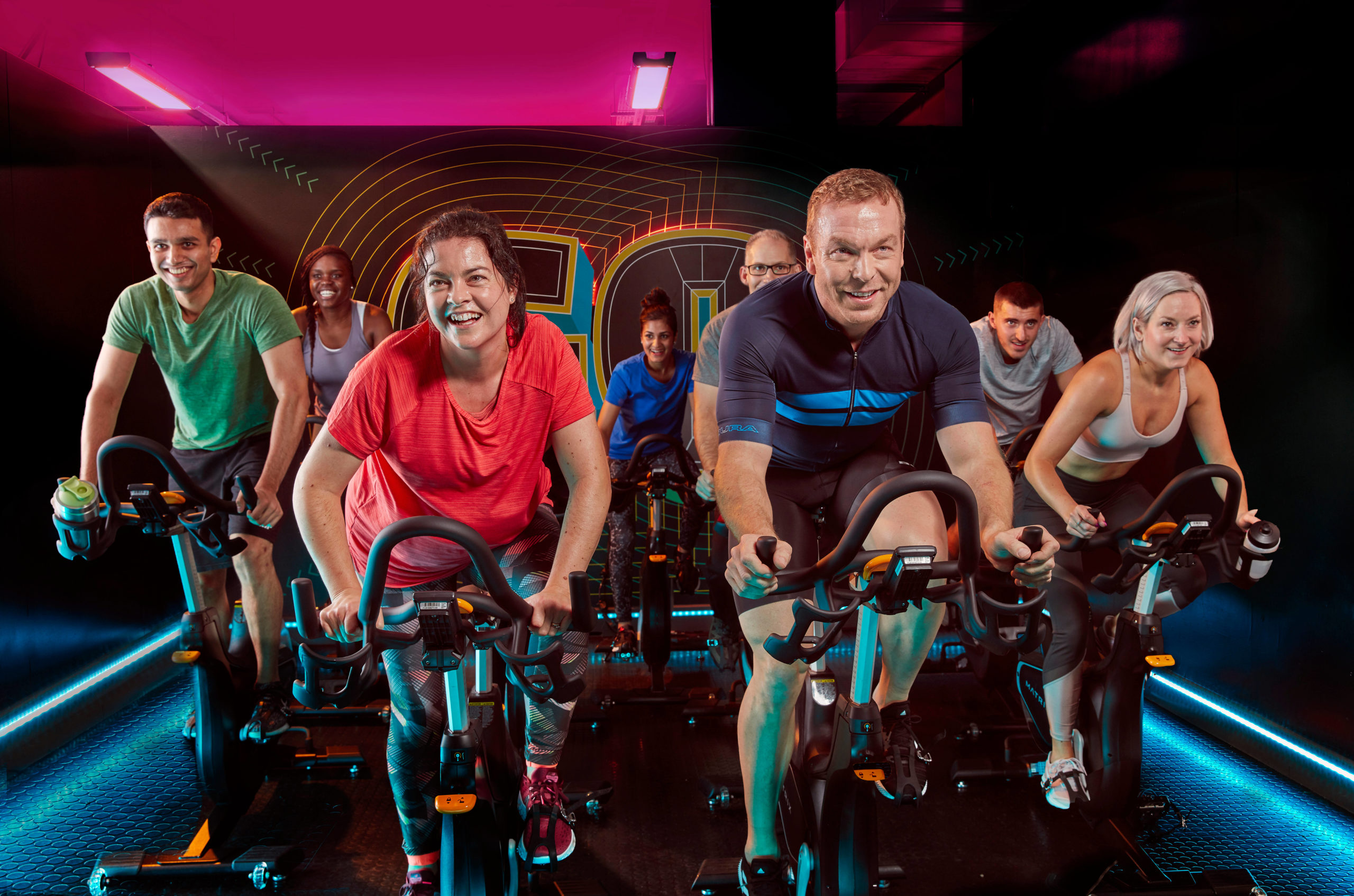
Do you have any other predictions for the future of indoor cycling?
I’d be surprised if it developed massively from where it is now. How much more can you do with indoor cycling besides give people good instructors, great environments, maybe some videos for at-home or in-studio use?
I certainly think the early wave of indoor cycling becoming part of the fitness landscape has happened, and it isn’t everyone’s cup of tea either so you have to have realistic expectations. My view is that indoor cycling has reached critical mass. I don’t see any reason why it wouldn’t retain that into the future, and some new studios will also come out I’m sure. But I think predicting lots of future growth would be misleading. I think we can expect steady, not spectacular, growth in this field.
A new spin on hotel fitness
Cast your mind back as little as 10 years to your experience of hotel gyms. Chances are, even at the most luxurious destinations, your workout took place in a small box of a room that housed perhaps a couple of treadmills, a Swiss ball if you were lucky, and a few dumbbells. It was there, the hotel gym, but it was an afterthought. Provision without passion. Something that was neither seen to contribute positively to the brand if done well, nor to undermine it if done half-heartedly. A tick in the box for the small minority of guests who wanted to work out, but no wow factor.
Fast-forward to today and all that has changed, with hotels around the world investing significant sums in fitness and wellbeing facilities that deliver the experiences travellers are now looking for – namely, experiences that are at least as good as the ones they’re used to back home.
No longer a trend, no longer an option.
Wellness is the standard our guests have come to expect François Dung, Accor
A resounding 83 per cent of business travellers now consider the gyms and wellbeing activities on offer before selecting a hotel – this according to travel management company CWT. Wellness tourism is also on the rise, growing by 6.5 per cent annually between 2015 and 2017 and projected to reach US$919bn by 2022. That growth is more than twice as fast as tourism overall (3.2 per cent annually, according to Euromonitor data).
The situation is summed up perfectly in the foreword of a December 2019 report – It’s a Wellness World – by hotel brand Accor, in which Emlyn Brown, vice president of wellbeing luxury & premium brands, explains: “The data shows we need to make wellness the standard, not the add-on. And we need to think bigger: beyond the gym, beyond the spa, and beyond granola and chia seeds for breakfast.”
It is, he says, about integrating feeling better into the entire customer journey, allowing guests to maintain their healthy habits as well as helping them discover new ones. “Because the modern luxury traveller of now – and the future – is on a journey: to find purposeful new travel experiences that speak to their inner self and to personal fulfilment. And they’re willing to pay a premium for it.”
Indeed, Global Wellness Institute data indicates that wellness travellers’ spend per trip is 53 per cent higher than the average tourist on international trips, and 178 per cent higher on domestic trips. Not only that, but as Brown explains: “The data shows that how well we meet their wellness needs influences how ‘delighted’ they feel about their hotel stay, and how likely they are to return.”
“No longer a trend, no longer an option. No longer a commitment just at home, or in waking hours; wellness is the standard our guests have come to expect,” adds François Dung, senior VP consumer & market insights, in a second foreword.
The question today is not: ‘Will you invest in your wellbeing provision?’ It’s: ‘How much, and what will be your model?’, with a number of different options to be considered.
The full-service club
In-hotel membership-based health clubs are nothing new; the likes of Village Hotels in the UK, and Hilton’s LivingWell, have been operating successfully for years. And to Ride High’s specific agenda, both feature good quality group cycling; Village even offers Les Mills’ immersive cycling experience THE TRIP at four of its clubs, as well as both virtual and live instructor-led classes at the majority of the other 30+ sites where it partners with Les Mills. Meanwhile, Technogym lists a number of hotels among its clients, all offering live classes to both guests and members. And even smaller hotels, such as those owned by the Soho House group, have recognised the appeal of group cycling: in the UK, Shoreditch House has a dedicated studio offering 31 House Ride classes each week.
But while hotel-based membership clubs aren’t new news, we’re certainly witnessing a momentum towards more expansive in-hotel fitness and wellbeing, financed at least in part by a local membership base. “Hotels increasingly see themselves as wellness destinations,” observes Matt Laird, global projects director for Resense.
Jeremy McCarthy, group director of spa & wellness for Mandarin Oriental Hotel Group, confirms: “We see our future development trending towards larger, membership-orientated health clubs. These will include group cycling: our new projects in Moscow, Boca Raton, Dubai, Nanjing and Dallas all feature cycling in their plans.”
Meanwhile, Resense is working with Kempinski to open a new hotel in Bangkok in April/May 2020, where a boutique gym is set to cater for around 500 members – alongside hotel guests – in a way that will see it compete strongly against local health club competition. Its five studios will include a dedicated cycling studio with IC7 bikes and a big screen, offering both live and virtual classes. “It’s basically a collection of luxury boutiques in a big box, which hotel guests can access for free but with constant membership revenue charged at just a bit above other local high-end clubs,” explains Laird.
We see our future development trending towards larger, membership-orientated health clubs
Paul Bowman, CEO of Wexer, adds: “Hotels are in an excellent position, as they already have great locations – cue cycling classes with views across the beach or city skyline, for example. As in-house health clubs get even better, not only do hotels get to sweat the asset by selling memberships, but the gym becomes a new business driver for the hotel in much the same way as restaurants have been for a while now: locals become brand ambassadors, recommending the hotel – off the back of their restaurant and/or health club experiences – to guests coming in from out of town.”
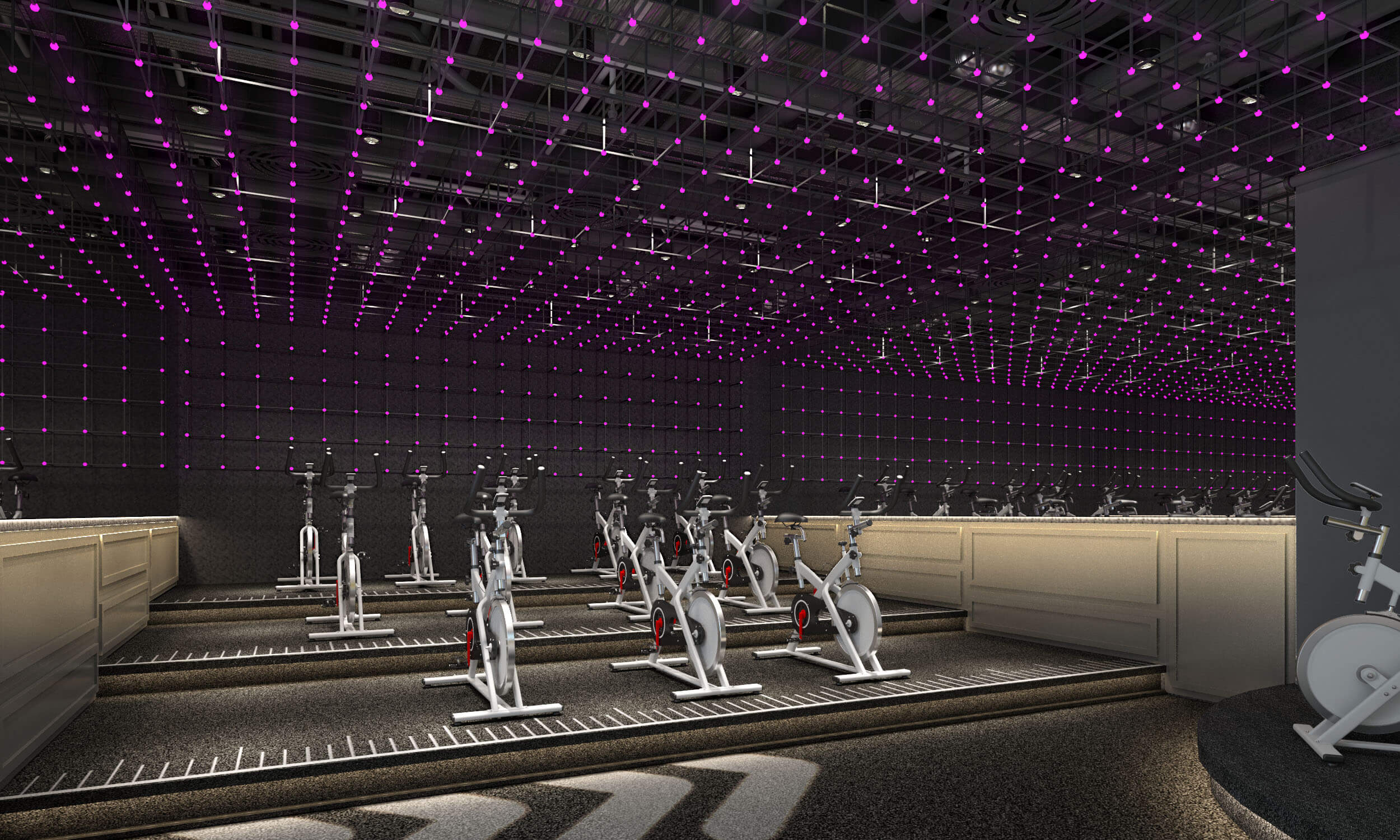
The club/hotel hybrid
As the bar of in-hotel fitness provision continues to be raised, says Laird: “Some of the bigger hotel brands are looking to cast themselves as ‘global Equinoxes’.”
But the flip side is also true, with some of the bigger fitness and wellbeing brands venturing into hospitality. In fact, in Europe, Aspria has done this for many years: half of its clubs include on-site hotels, with discounted rates for members, and hotel guests enjoying access to the full wellbeing offering: spa, fitness, sport, restaurants and more.
But this trend has certainly gone up a gear recently, not least thanks to the brand power and visibility that Equinox brings to its new ventures. In summer 2019, it opened its long-awaited wellness hotel in New York’s Hudson Yards; hotels in Los Angeles, Santa Clara, Seattle, Chicago and Houston are set to follow.
At the Equinox Hotel Hudson Yards, 212 guest rooms are complemented by a 60,000sq ft Equinox health club – at the time of opening, the largest Equinox gym in the world – as well as a 27,000sq ft (2,500sq m) luxury spa, indoor and outdoor pools, a SoulCycle studio and a healthy-eating restaurant. All hotel guests are given temporary Equinox membership for the duration of their stay. Midtown Athletic Clubs is another brand that’s thrown its hat into the hospitality ring, with the September 2017 opening of its Chicago club, a boutique hotel (55 rooms and four suites) built right at its heart.
As at Equinox, you’re a member of the Midtown club for as long as you stay at the hotel. That includes all group exercise, for which the club is rightly famous, its five distinct GX areas in effect in-club boutiques. The Field’s huge expanse of turf is an inspirational space for functional training classes; Samadhi is a stunning yoga studio complete with wide wooden floor boards and two beautifully crafted trees; EveryBody Fights is a dark, moody space dedicated to George Foreman III’s boxing programme; The Theater is all lights, camera, action for group fitness; and RIDE is a 55-bike cycling studio, complete with giant screen projecting immersive, rock concert-quality visuals.
There are almost 300 classes on the Midtown Chicago timetable, of which 56 are RIDE – a popular option that averages around 80 per cent capacity, with many classes full. However, as the club does not operate a booking system for any classes, hotel guests are not at a disadvantage compared to members. “If you have a booking system, you need some sort of penalty system for no-shows too, and that doesn’t sit well when people are paying US$200–250 a month,” explains Midtown president Jon Brady.
‘Alone Together’
Midtown is now in the process of building hotels as part of club renovations in upstate New York and another Chicago location, and is looking at further options in both existing and new clubs. And Brady sees other operators following suit: “As a general rule, hotel operators won’t be experts in fitness, and vice versa, but we will see more experimentation as those who have taken a leap of faith, like Midtown, are succeeding.”
He continues: “Ours is a 675,000sq ft health club with a hotel attached, as opposed to a huge hotel with smaller gym or in-room fitness. That’s an important difference, because it helps us create the experiences that guests want.
People are looking FOR a SENSE OF community AND CONNECTION WHEN THEY WORK OUT
“At Midtown, we call it ‘Alone Together’, and it’s all about the fact that people like to be around other people, even if they aren’t engaging with them. It’s why hotel bars are so popular. You could have exactly the same drink in your room, but you’d rather be around people than looking at your four walls. Our clubs therefore have spaces where you can just sit and work, or have a coffee or a glass of wine, with others around you.
“People are looking for that same sense of community and connection when they work out. It’s missing from an in-room exercise experience, but it’s something health clubs are perfectly placed to deliver.”
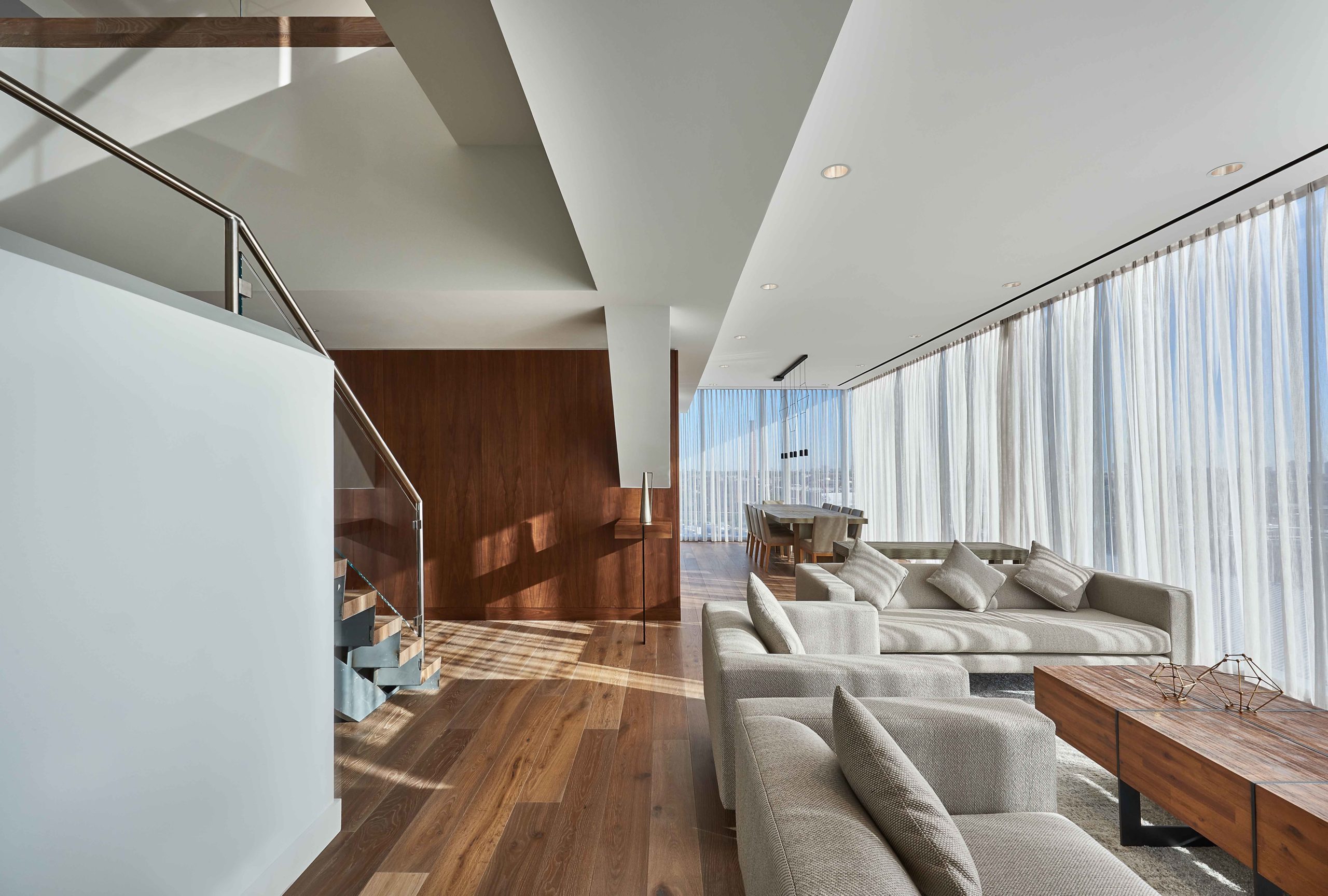
In-room fitness
Yet there are brands that have made a success of in-room fitness, not least Hilton’s Five Feet to Fitness concept, which launched in 2017. With 11 different equipment and accessory options incorporated into the hotel room – including Wattbike as the cycling option – all supported by over 200 bespoke exercise tutorials via a touchscreen display, guests have everything they need for a workout at any time of the day or night. The concept is currently available in around 20 hotels, with plans to roll it out further.
Other hotel brands treading this same path include EVEN Hotels, whose whole purpose is wellbeing and where the guest rooms double as gyms; Swissotel Vitality suites, where a Wellbeing Wall offers cables and weights alongside a Peloton bike and WaterRower; WestinWorkout rooms, which are equipped with either a bike or treadmill, plus pilates equipment; and Tryp by Wyndham’s Fitness Rooms, offering either bike, elliptical or treadmill plus yoga mat. Meanwhile, at Accor’s Fairmont hotels, loyalty members can request yoga mats and other fitness equipment be delivered to their room. Laird comments: “I know of a few places that offer bikes on demand too, brought to your room on request.”
Mandarin Oriental’s McCarthy adds: “We find that fitness is increasingly important to our guests, but it’s also becoming more niche and personalised. Our approach is to strive to know our guests better, so we can deliver the specific fitness experience that each guest is looking for in a personalised way. For runners, this might mean access to downloadable jogging maps on their favourite app. For yoga practitioners, we may offer a yoga mat and complimentary yoga videos they can follow in their room. And for cyclists, we usually offer some kind of studio cycling bike; some of our guests have even told us that the specific cycling set-up we were able to offer was a factor in choosing where they stayed.”
Quick returns
Certainly, with in-room workouts already the favoured option for 27 per cent of business travellers in spite of limited options at this stage – another interesting stat from CWT – the pure convenience of the set-up means we’re likely to see in-room fitness continue to grow, particularly as new technology emerges to make the experience ever-more engaging.
“In-room fitness is a big thing in the US, with customers really taking to this concept and
hotel owners getting full ROI very quickly. Hilton is now expanding its concept internationally – to the UK, EMEA, APAC – and other brands will need to react,” confirms Wattbike’s Steve Marshall.
cycling is established as a class format. People understand they can jump on and do a virtual class
Peloton already offers a Hotel Finder website, where would-be guests can track down hotels that offer Peloton bikes – around 500 hotels in the US alone, at the time of writing. Technogym is, it says, working on a wellness suite solution for hotels – an in-room wellness experience comprising its Peloton-style Technogym Bike, Skilltools selection and streamed classes – and is already trialling its Technogym Bike in-room at the Radisson Mayfair. And brand new to the market is BODY BIKE’s SMART+ SWITCH, a specially designed indoor cycle with a unique twist: it can guide exercisers not just through a cycling class but through a full-body workout, making it the perfect option for independent in-room fitness.
Created in collaboration with digital fitness market leader Wexer, SWITCH’s integrated screen comes pre-loaded with virtual class content for an uninterrupted, buffer-free experience. A further USP is the screen’s optional 180° swivel, meaning you can jump on, select a class and ride, then turn the screen around to complete a floor-based workout in front of the bike: HIIT, cardio, strength, yoga, pilates, stretch or meditation, all requiring minimal equipment. All workouts are led by the top instructors in the world, with hotels offered the option to curate bespoke collections to suit their guests’ needs, choosing from over 500 classes – and growing – that span 12 languages.
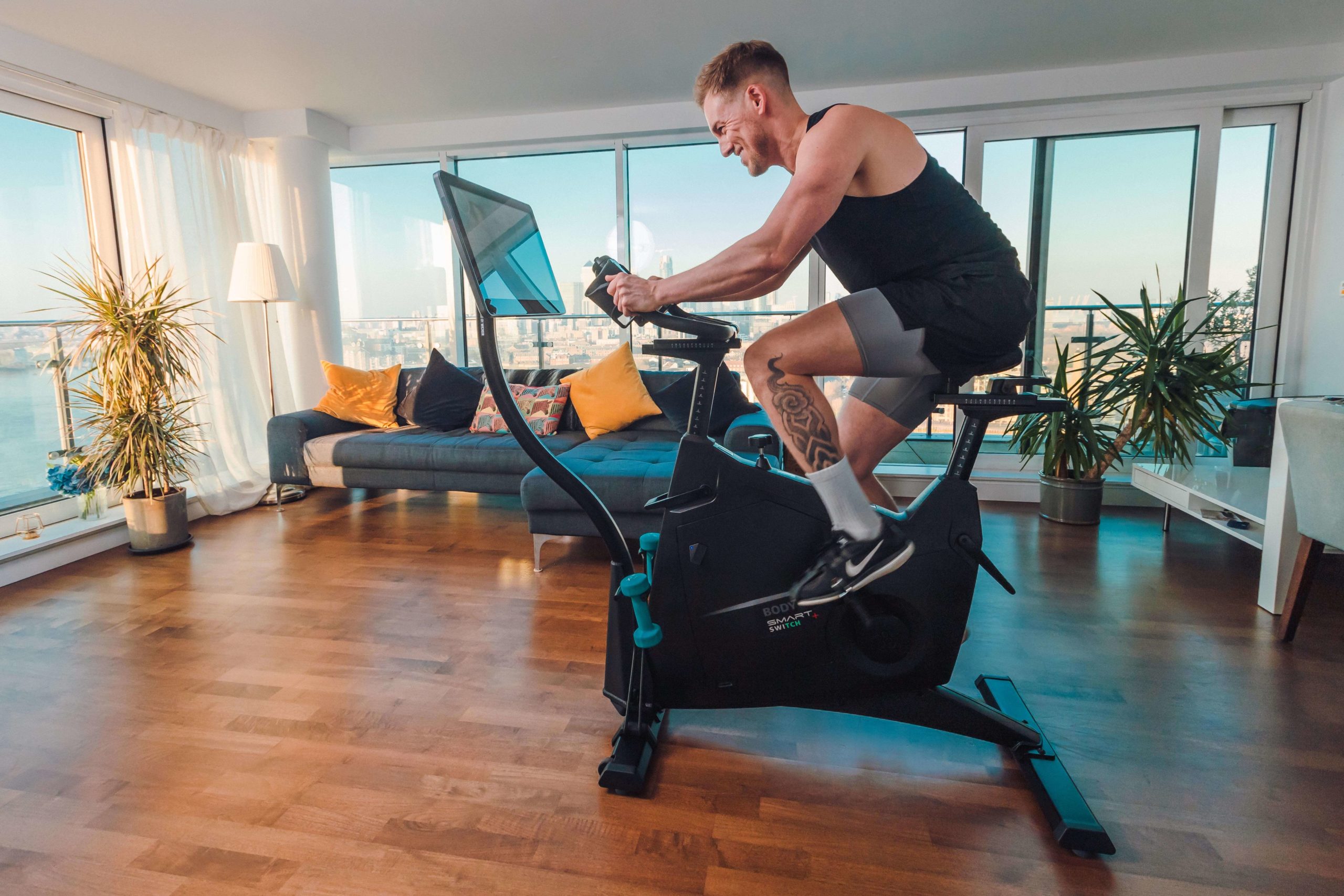
Gym floor standalone
But where these bikes are making even more of an impact is on hotel gym floors, say the experts; Midtown is, it seems, onto something with its ‘Alone Together’ philosophy.
“I was at the W Hotel and Omni Barton in Austin, Texas, the other day,” says Laird. “Both had gym floor Pelotons and all were being used. I predict we’ll see more and more virtual on the gym floor, and bikes are the obvious starting point: cycling is well established as a class format and easy to follow on a screen. Compared to other CV kit on the gym floor – cross-trainers, treadmills – it’s easier to have a screen on a bike and have people understand that they can jump on and do a virtual class.”
He continues: “In the end, it’s all about content: getting group exercise into a hotel environment, at any time of day, with world-class instruction without the need for live instructors. Everyone is doing virtual these days, so consumers are used to it. And the level of instruction is better than you might normally get in a hotel, so it better supports hotels’ premium positioning.”
Jon Canarick, managing director at North Castle Partners, the investor behind the Echelon bike, agrees: “Nowadays, a connected experience should be everywhere CV kit is.”
What matters, observes Laird, is having “bikes that last” – cue a whole raft of bikes coming onto the market that offer similar to Peloton but in a commercial model, where Peloton was always designed for home use. These new bikes include BODY BIKE SMART+ SWITCH – unique in its 180° flip screen option – alongside the likes of Freemotion’s CoachBike, the Technogym Bike, available now at Hilton Heathrow, and the Stages Les Mills Virtual bike, the latter already installed in hotels such as the NED and The Savoy in London. “The Stages Les Mills Virtual bikes are very popular with our guests, helping them keep up their fitness routines while travelling, and feedback has been positive,” says Alison Vernon, director of rooms at The Savoy.
Echelon is also due to launch a commercial model in the near future, and Life Fitness recently added virtual content to all its CV kit.
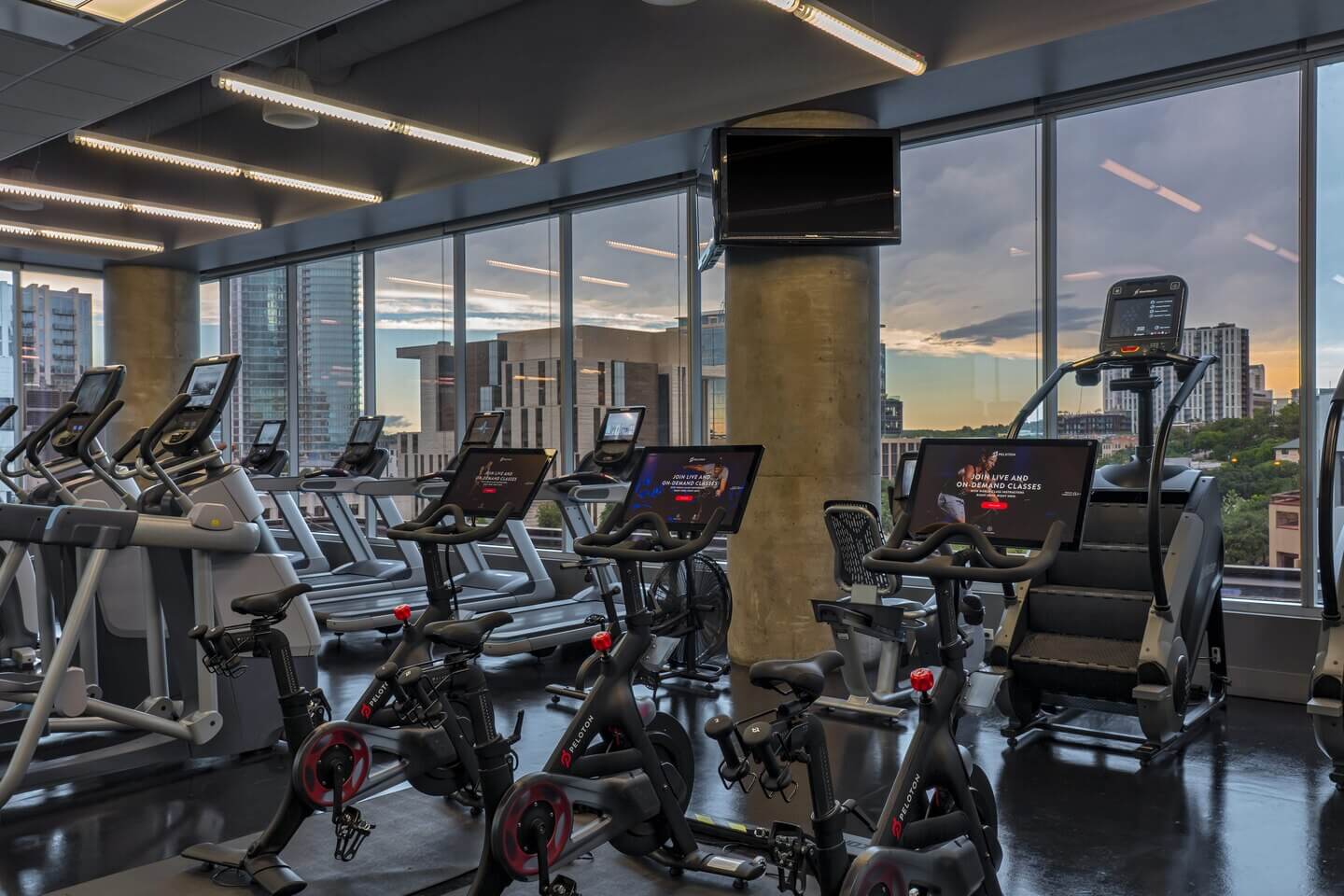
Virtual studios
Other hotels have expanded their offering to create full Peloton studios, with the Sheraton New York Times Square and the 12,000sq ft gym at the TWA Hotel – in terminal 5 of New York’s JFK Airport – both great examples.
TWA Fitness caters for transit passengers, hotel guests and members drawn from the 400,000 employees working at JFK, and its 13-bike Peloton studio has been one of the most popular elements of the offering since it opened in mid-2019. The studio is geared up for accessibility, so people can just turn up and jump on, but as Jay Wright – CEO and founder of The Wright Fit, which designed and now operates the gym – explains: “Our team partners closely with the hotel sales department and it’s not unusual for large conference groups to request an entire studio buy-out for two or three classes during their event.”
Meanwhile, Wexer says the demand tends to be for virtual GX spaces on hotel gym floors rather than separate studios, with its partners including Meliá, millennial-focused brand Selina, and Amsterdam’s Conservatorium Hotel. In a pilot, Meliá experienced a 10 per cent uplift in guest satisfaction scores when it installed Wexer Virtual at two of its hotels, and as a result the operator has rolled out the offering to additional locations.
At its Paris Charles de Gaulle airport hotel, without any promotion on the part of the hotel, guests are selecting three to four on-demand cycling classes a day, with the bikes lined up in front of a big screen.
We’ll see more virtual bikes on the gym floor, driven by the desire for world-class content that aligns with the hotel experience
Les Mills is doing similar with its virtual product: at its Paris Bercy hotel, Accor Hotels’ Pullman brand has a gym floor virtual cycling space equipped with BODY BIKES and offering RPM and SPRINT classes. Meanwhile, Marriott features a number of hotels with Life Fitness bikes and Fitness on Demand classes.
Diverging models
“We’ll see more and more standalone virtual bikes on the gym floor, driven by the desire for world-class content and instruction that aligns with the hotel experience more broadly,” concludes Laird. “Complementing this will be some in-room access to bikes, perhaps on-demand. But mostly it will be about virtual workouts on the gym floor.”
“Simultaneously, we’ll see some brands move towards bigger wellness offerings, financed by local memberships, to better satisfy guests. These are quite likely to include cycling studios, for virtual classes and perhaps also live too.”
Marshall agrees: “Instructor-led indoor cycling classes will be important only in the largest sites. For the majority, we’re expecting customers to want to connect to a social group but to get that experience online.”
The model for hotel-based fitness is diverging, then, but it seems cycling will remain at the heart of the offering.
Something in the air
Thomas, what would you consider best practice for air conditioning in cycle studios?
Before we go into any details, you first have to understand that there are different methods of getting the air ‘just so’.
The first is ventilation. These systems don’t cool the air. They can warm it, so they’re good for the winter, but they can’t cool it. They basically replace ‘old’ air with ‘new’, sucking in air from outside and blowing it into the studio. Whatever volume of air these systems blow in, they also suck back out of the studio, in the process removing moisture and CO2 from the room.
The second option is a climate control system, which is the same as a ventilation system except it does include an option to cool the air. These systems are able to maintain your ideal studio temperature year-round.
And then, finally, there’s air conditioning. These systems recirculate the air that’s in the studio, so although they do allow you to change the temperature, they can’t prevent build-up of CO2 or moisture. They don’t introduce any fresh air to the room. I personally don’t tend to work much with air conditioning.
Ventilation systems are the most cost-effective. I therefore recommend studios either have just ventilation or, if you feel you have to cool the air, that you have two systems installed: ventilation, and then either air con or climate control. That way, you can switch between the two as required.
The room might not be cold, but as long as you feel air moving over your body, you’re OK
If you’re relying on ventilation, do cyclists not get too hot?
There will, of course, be times and places when the outside air is so hot that your climate or air conditioning system has to kick in. While it’s down to personal preference, you’re probably aiming for a studio temperature of 18–20°C; if the air outside is significantly higher, then yes, I would probably recommend having two systems installed.
However, picture this scene. You’re out road cycling on a hot summer’s day, the sun is beating down, but while you’re moving along there’s always air flowing against you and you feel, if not cool, then certainly comfortable temperature-wise. Then you stop at a traffic light and all of a sudden you’re sweating, you feel uncomfortably hot. It’s unpleasant. Finally the lights turn green, you start cycling again, the air circulates around your body and you’re back to feeling good.
It’s similar in a cycling studio. The room might not be cold, but as long as you feel the air moving over your body – even if that air isn’t freezing cold – you’re OK. I’m not saying you should let the room get really hot, but what really matters is that feeling of air on you while you’re exercising. It’s one of the reasons why I always suggest a cycle studio includes a ventilation system. In fact, one of our clients had a bit of an ‘a-ha’ moment in this respect.
We changed the air system at one of its clubs, putting the installation in the ceiling rather than on the walls: a very simple, round tube that blew air down on the participants below. The temperature in the studio was able to go up, but there was lots of air in the studio and they had great feedback from members – as well as saving money on their energy bills.
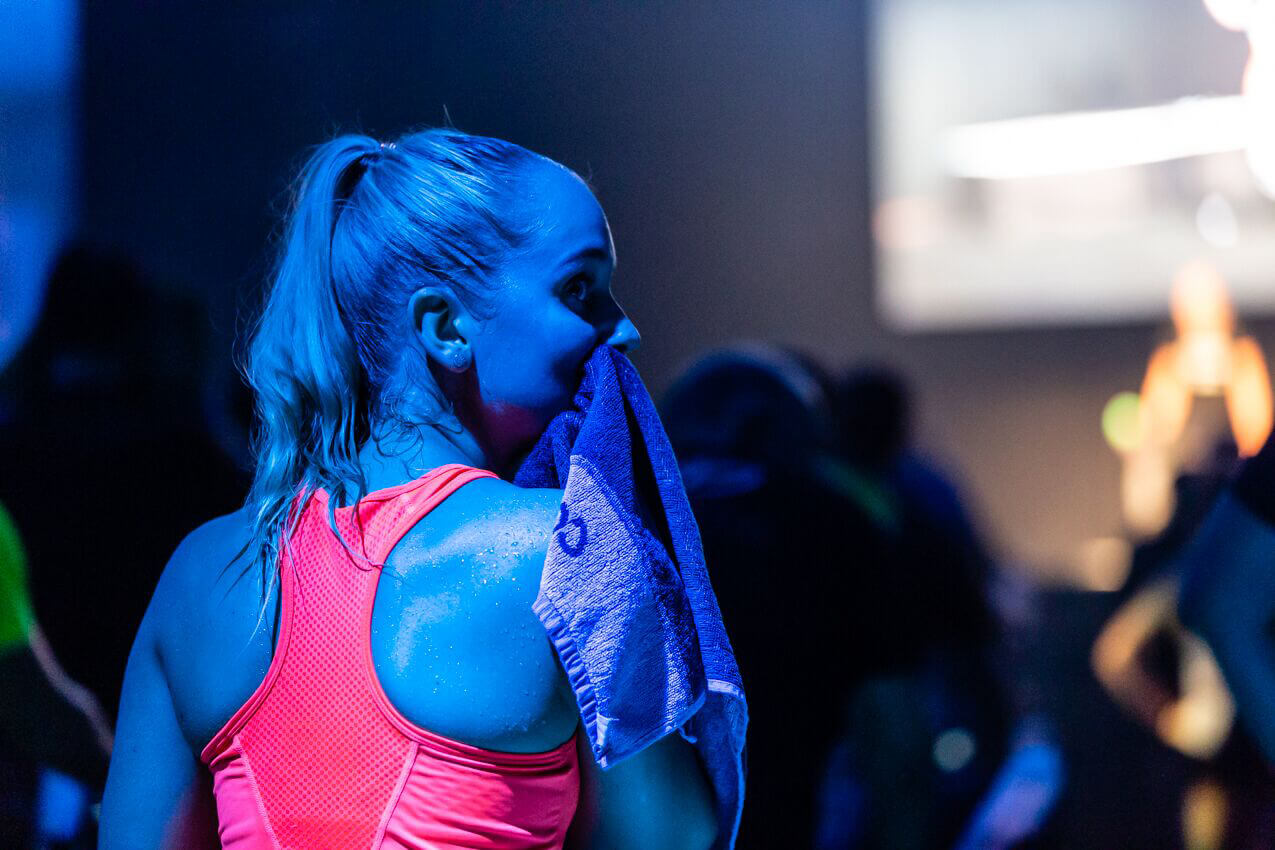
So, is the ceiling the best place to put a ventilation system?
It’s certainly my recommendation. There’s nothing worse than sitting there and not feeling any air, which can happen to those in the middle of the room if the air is coming in from the side, or even the sides.
Ventilation and air con systems can be a little noisy, admittedly, but in a cycling studio – where the music is up loud and the bikes whirring – that doesn’t matter. So, my advice: put the units where they will have the best effect for people. And for me, that means letting the air blow down over people.
The size of the room will dictate how many ventilation units you need, but if you do it right, even with say two units in the room, you can still have numerous nozzles across the ceiling which blow an ‘air curtain’ down over people.
How often do you need to change the air in a cycling studio?
If you calculate it properly using a measure called MET – Metabolic Equivalent for Task, which estimates the amount of energy and oxygen used by the body during physical activity, as compared to resting metabolism – you come up with a really, really high number.
Start from zero: when people step into the studio before class, it can’t already be full of CO2 and moisture
If you’re sitting still in an office, then you have a MET of 1. If you’re elite athlete training hard, you might have a MET of 15. For indoor cycling, I would say it’s about 10.
I’ve tried to do the sums to translate that into CO2 emission and I make it about 280 cubic metres per hour, per person. Then you look at the typical size of a cycling studio: maybe 50sq m with a ceiling height of, say, 3 metres. That’s 150 cubic metres, which would mean we’d have to ventilate the room twice an hour for every person in there. Multiply that by even just 20 people in a class and it’s a huge number.
I don’t think that’s necessary though. I would say 14–16 times an hour is fine. But you do need to make sure you’re starting from zero, by which I mean when people step into the room before class, the room can’t already be full of CO2 and moisture. They need to be stepping into a room where the air is ‘fully powered’ with the right level of oxygen.
How can clubs ‘fully power’ their studios before each class?
There is no doubt that, for a well-ventilated room, it helps to have half an hour between classes. Ideally, ventilation should then start automatically in advance of the class starting, either on a timer or using a sensor. You will usually have a good 10–15 minutes between the first person coming in and the class actually starting, so you could set the ventilation to start at 10 per cent of its maximum flow as soon as the sensor detects movement in the room.
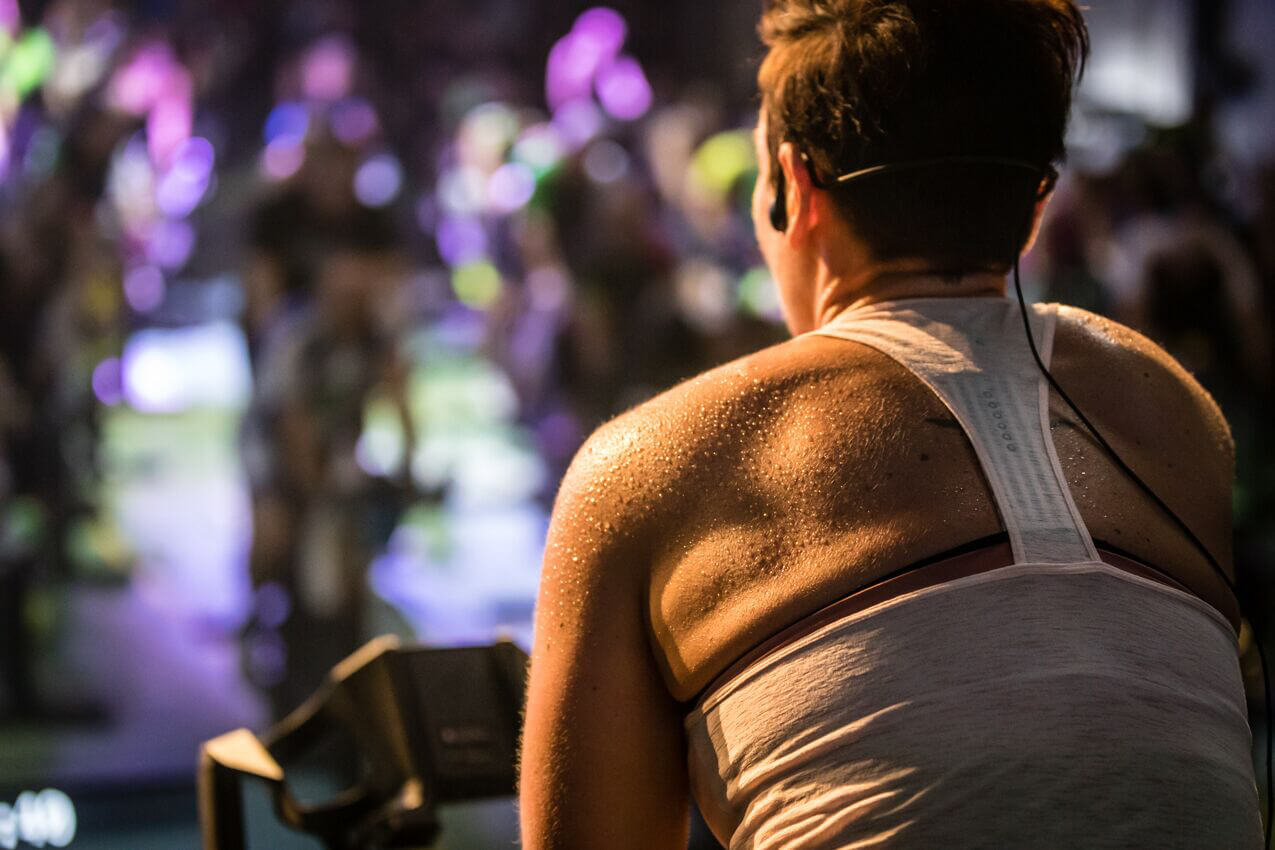
Incidentally, I also recommend having CO2 and temperature sensors in the room. At the beginning of the class, the air flow can be lower – the 10 per cent flow I mention – rising as the CO2 levels and room temperature rise. Once again, this helps you save money, avoiding the need to have the system set to max for the full duration of the class.
However, not many health clubs and cycling studios have these sensors. It’s often the instructor who turns on the ventilation just before the class starts. If you don’t have sensors, I would recommend the ventilation is set at 10 per cent of its maximum flow throughout the club’s opening hours – turned up, of course, during classes – so the studio is always ready to go.
Ventilation isn’t just about the experience. It’s about keeping equipment in good working order
In terms of temperature, if you want to cool the room from 28 to 20 degrees as an example, you need to allow 30 minutes between setting the temperature and the start of the class. Because it’s not only the air which has to cool down, but also floor, walls and bikes.
Any other advice for cycle studio operators?
Ventilation isn’t just about the experience for cyclists. It’s also about keeping the equipment in good working order. A well-ventilated environment helps control moisture levels, which in turn helps prevent rusting of the bikes and the malfunction of any electronics in the room, such as the music system.
However, moisture isn’t the only problem. Sweat contains salt too, which can also cause bikes to rust. I therefore strongly advise, alongside a good ventilation system, that operators clean the surfaces after every class to remove salt.
Meanwhile, we recommend you have your ventilation systems serviced at least once a year. And if you have a system with coolant, I’d suggest a minimum of two services a year to ensure the coolant doesn’t escape the system.
One other thing that might be worth noting: I have seen some places where they have propellers in the ceiling, which somewhat support the theory of air over the body. However, they don’t remove the C02 or moisture. Without a proper ventilation unit, operators have to be able to open a window, which I personally don’t recommend as a solution.
Finally, you can infuse scent into the air if you wish: it can help make the room smell pleasant rather than sweaty, of course, but it can also positively impact people’s mindset. Citrus is a particularly good choice for cycling studios: it encourages members to work harder because they feel fresh.
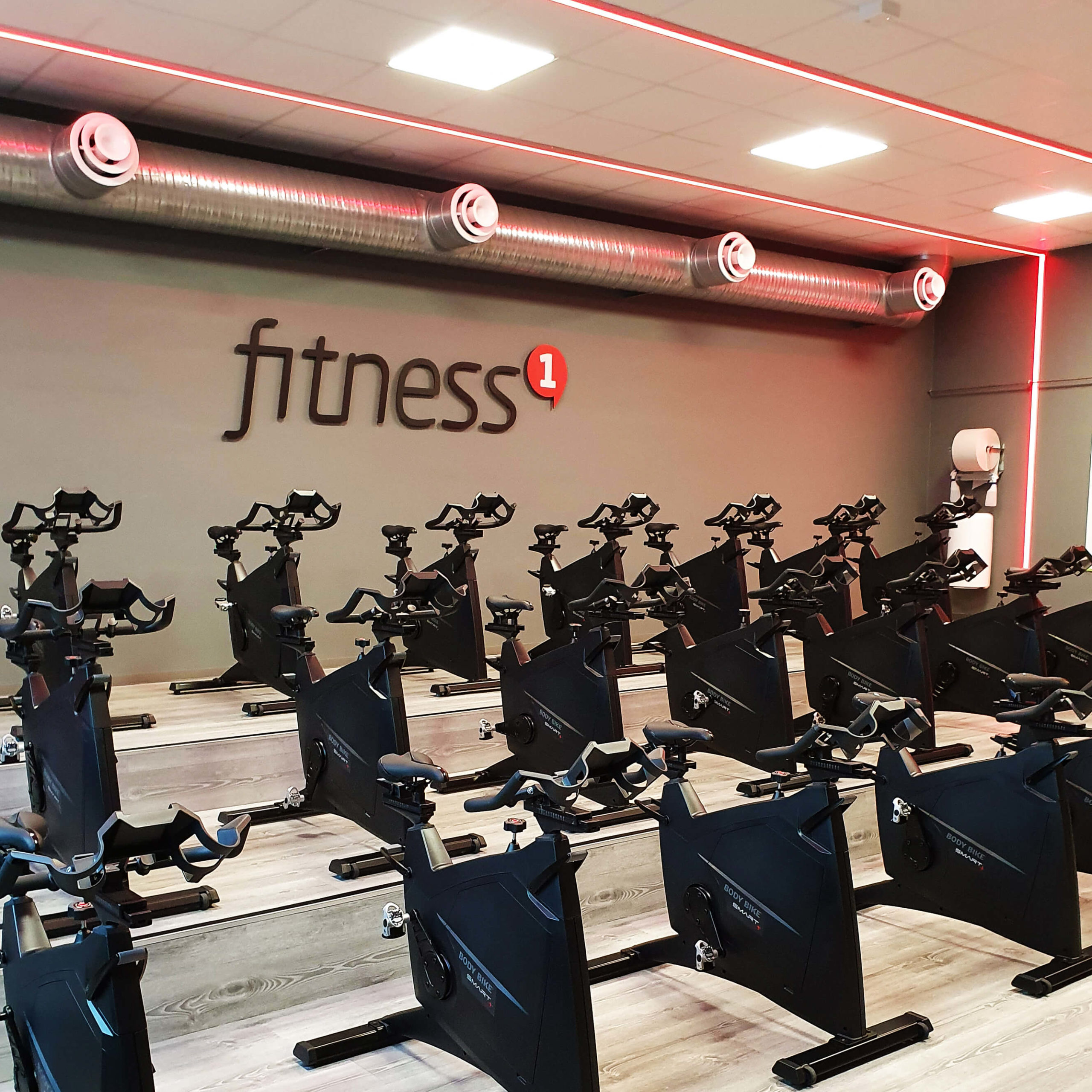
On the fly
In the space of one week in January, my email inbox pinged with two separate cycling-related M&A news alerts: in the US, Flywheel being acquired by Town Sports International (TSI); and in the UK, Digme Fitness acquiring Another_Space – just two sites, but with the deal signalling the end of premium health club operator Third Space’s boutique venture, nevertheless a significant decision and a press release I took the time to read in full.
Perhaps it was just the proximity of the two emails in my inbox, but I started to wonder whether this marked the beginnings of a real consolidation of the boutique sector, and boutique cycling specifically.
Peloton has unquestionably taken people out of cycling studios – Jon Canarick
Stick to your strengths
After all, it’s no secret that even the big brands have a battle on their hands in the shape of Peloton and the growing cohort of ‘me too’ products. In fact, particularly in the US market, the Peloton Effect means there is arguably now an oversupply of cycling studios.
“We’re seeing a decline in studio-based participation in favour of at-home cycling,” observes Jon Canarick, managing director at investment firm North Castle Partners. “My view: Peloton has unquestionably taken people out of cycling studios.”
Meanwhile, with Club Industry (2019) reporting that only 40 per cent of boutique studios are making money, it feels like the winners in boutique fitness are beginning to more clearly distinguish themselves from the rest of the field. And hence my mulled question: could we start to see further acquisitions as more boutique brands threw in the towel?
And yet as I dug into the details, it quickly became clear that these were two very different stories. My interpretation of the Another_Space deal is this: the admittedly beautiful studios were probably a distraction for Third Space, which has just opened its sixth stunning, large format club in London. Big box is Third Space’s heartland. It’s what it does brilliantly well. And those big boxes already include top-quality classes and cutting-edge group fitness spaces.
It’s a trend we’re witnessing around the world, in fact: as leading big box operators continue to up their game in terms of the quality of their group exercise offering – we’re talking the likes of Midtown Chicago, with its five separate, jaw-dropping boutique-style spaces all under one roof and all available as part of membership – competing with the boutiques happens in-house rather than as standalone ventures.
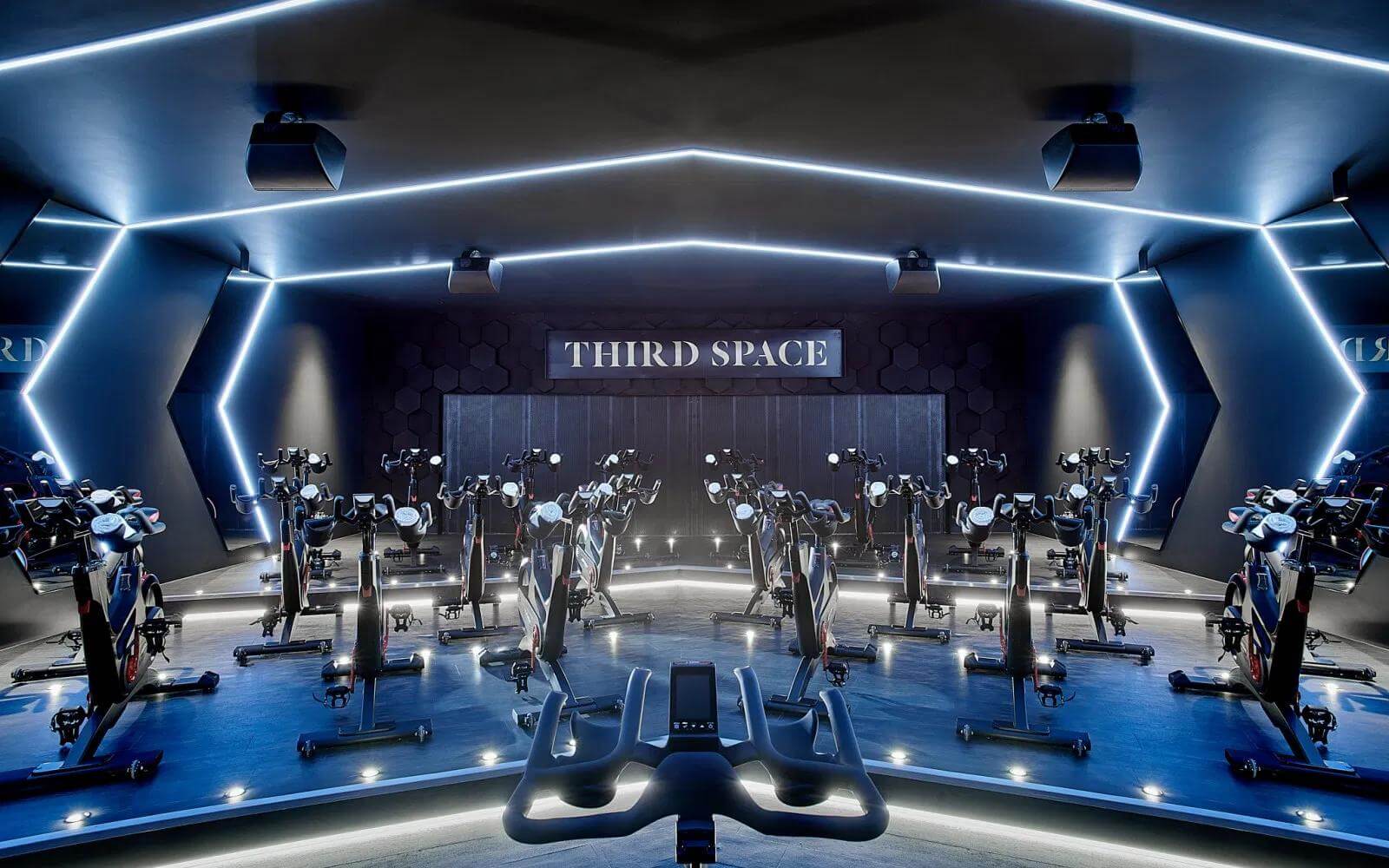
Together we’re stronger
So, the sale of Another_Space – it makes sense. Stick to what you’re really, really good at. Offload the studios to someone, in this case Digme, who is making a success of boutique fitness. And put that boutique level of effort into your big box clubs. The Flywheel deal. That feels different. That feels more like a partnership, a coming together of two brands in a ‘united we’re stronger’ kind of approach.
Why so? Take a look at the New York Sports Club website and you’ll see combined NYSC-Flywheel “Best. Membership. Ever” packages: US$240 a month will get you gym membership plus eight Flywheel classes, for example. When you consider that just a few months ago, one-off Flywheel classes were priced at US$30 a pop… well, the maths is easy. That’s gym membership essentially for free.
Cycling is a form of group exercise that easily translates into the home via a screen
(By the way, word is that Flywheel classes didn’t always sell for that much – not recently anyway, with a heavy reliance on ClassPass and half-price discounts. More on the well-documented troubles of Flywheel in a minute. The point is, this NYSC-Flywheel deal gives you far more for your money – that much is beyond dispute.)
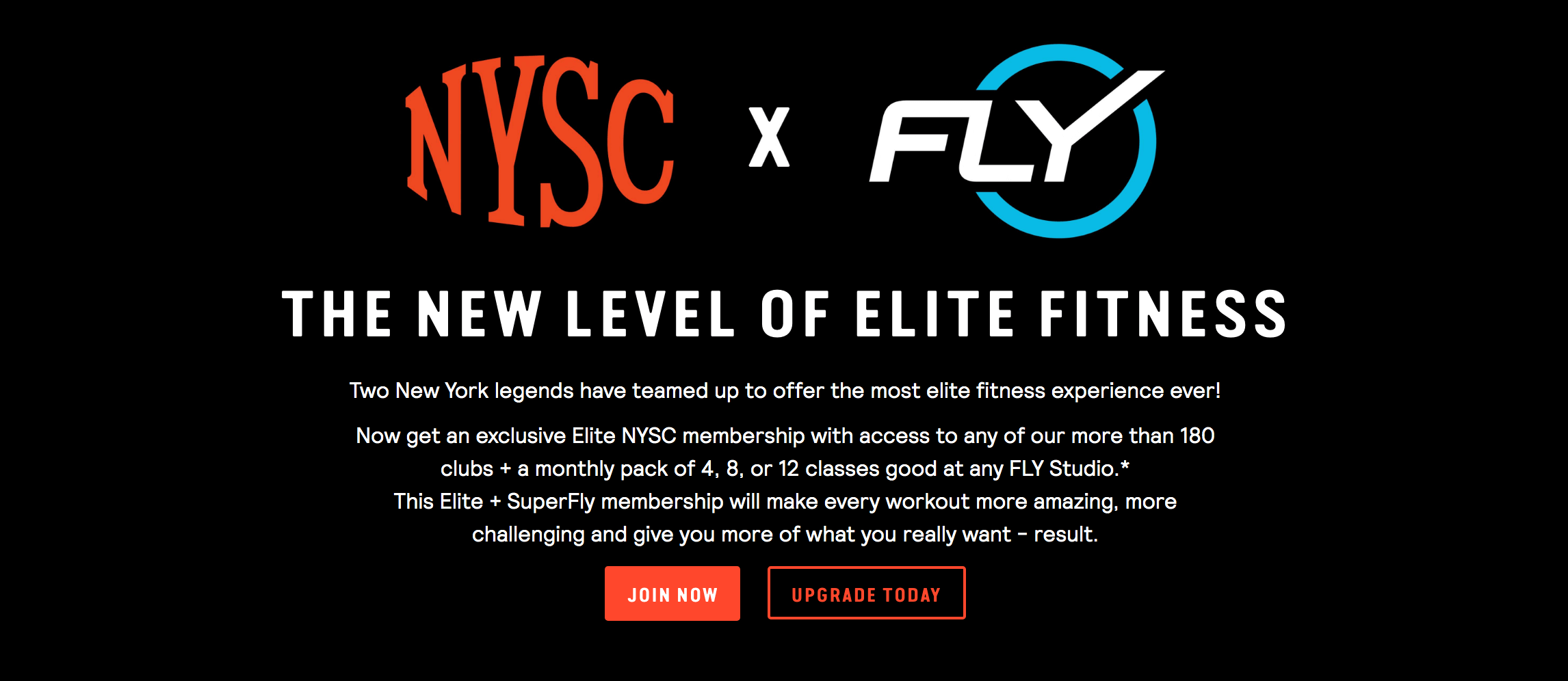
Studio-based innovation
I spoke to Canarick about the Flywheel deal; as the investor in Echelon Fitness, its connected home bike fronting up to challenge Peloton, North Castle is well versed in indoor cycling these days. His view: “I think it’s a smart strategy that’s all about value, and value matters.
“Bringing Flywheel into the equation gives cycling enthusiasts a great reason to join New York Sports Club as opposed to one of its competitors – and that means more members for NYSC – while for Flywheel it means more spots filled at a good yield.
“And it comes at a good time, because there’s reduced opportunity to charge big bucks for group cycling these days. With other boutique offerings, like Barry’s for example, you have to be there in the club. That means they can still charge a premium. But cycling is a form of group exercise that easily translates into the at-home environment via a screen. And that’s why, as I say, Peloton has taken people out of cycle studios, and why people are less willing to pay high prices at studios.”
He continues: “That said, I believe there is an opportunity to inject some innovation into the cycling studio space. For example, I can tell you that Barry’s is running 30-day pop-ups for a new concept, Barry’s Ride, in LA and NYC. These limited edition rides take all that is great about the bootcamp class, just with bikes subbed in for treadmills – so you get 25 minutes of HIIT cycling alongside a tried and tested 25-minute weightlifting programme.
“So, cycling certainly isn’t dead. It’s increasingly happening at home rather than in-studio, but innovate and it could bring a new appeal to
studio classes.”
Flywheel’s lawsuit with Peloton settled last month, at least outwardly in Peloton’s favour
Of course, this is Barry’s, with its uber-strong brand and enviably loyal community. Many other studios already offer cycling fusion classes; it certainly isn’t a never-been-thought-of-before innovation. It’s also hard to wildly innovate within a class on a bike. So even if Barry’s succeeds here, it doesn’t necessarily signal an exciting new dawn for studio-based cycling as a whole. Yet it remains interesting that Barry’s is keen to dip a toe into the cycling market.
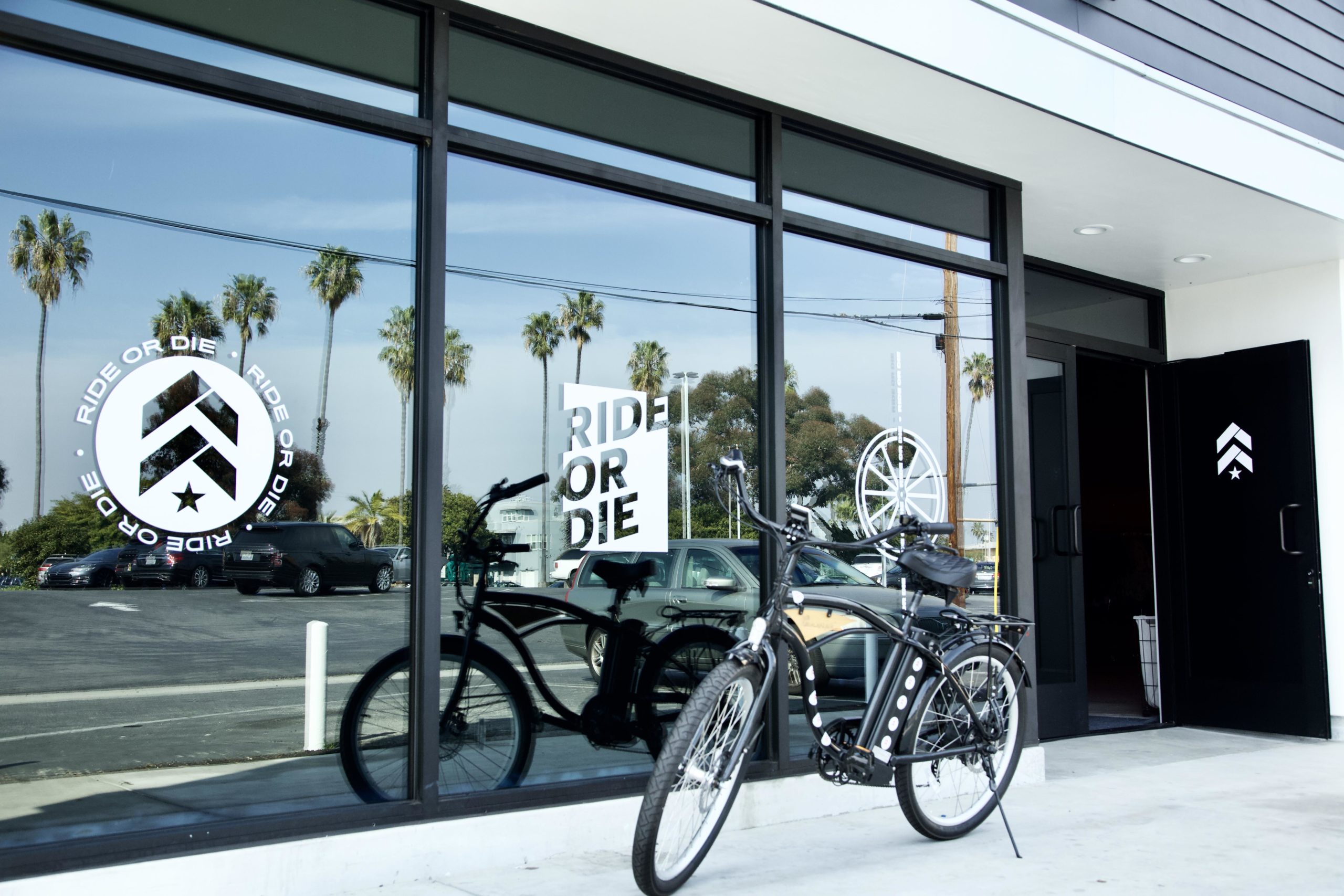
A rocky ride
But we digress. Back to the matter of Flywheel.
Do a Google search and it’s clear the story over the past few years has not been a particularly happy one. A “streamlining” of the executive team in mid-2018 was followed at the end of that year by the departure of co-founder Ruth Zukerman. CEO Sarah Robb O’Hagan also left the company. Control was then seized by Flywheel’s lender, Kennedy Lewis Investment Management, in April 2019, with a buyer actively sought for the company.
In mid-2019, a statement announced the closure of 11 of Flywheel’s 42 locations; the focus would, it seemed, be on the remaining profitable sites, along with selling Flywheel bikes for at-home use.
And finally a blow on that front too, with Flywheel’s well-documented lawsuit with Peloton settled last month, at least outwardly in Peloton’s favour; we do not know the full details of the settlement. However, Flywheel certainly publicly acknowledged that its home bike had infringed on Peloton’s patent and agreed it would no longer use its leaderboards. But that wasn’t the end of the matter: late last month, Flywheel announced it would stop offering At Home classes altogether on 27 March 2020; existing customers were emailed a trade-in offer for Peloton bikes.
After many months spent fighting Peloton, this capitulation may seem surprising, particularly given speculation that Flywheel was close to having Peloton’s patents invalidated. Certainly, the patents in question had been accepted by the review board for IPR proceedings, a stage of the patent review process where the odds are statistically against patent owners.
But when you look back at everything else that’s happened at Flywheel over the past 18 months – and given its renewed focus on bricks and mortar via combined NYSC-Flywheel memberships – perhaps the costly fight for a foothold in the competitive at-home market was simply not worth fighting any more.
“It’s a shame,” says Canarick, “because if the Flywheel Home Bike had come out sooner –perhaps with a slightly more differentiated pricing, content and distribution strategy to set it apart from Peloton – the two could have been the Coca-Cola and Pepsi of the home cycling market.”
It was, however, not to be.
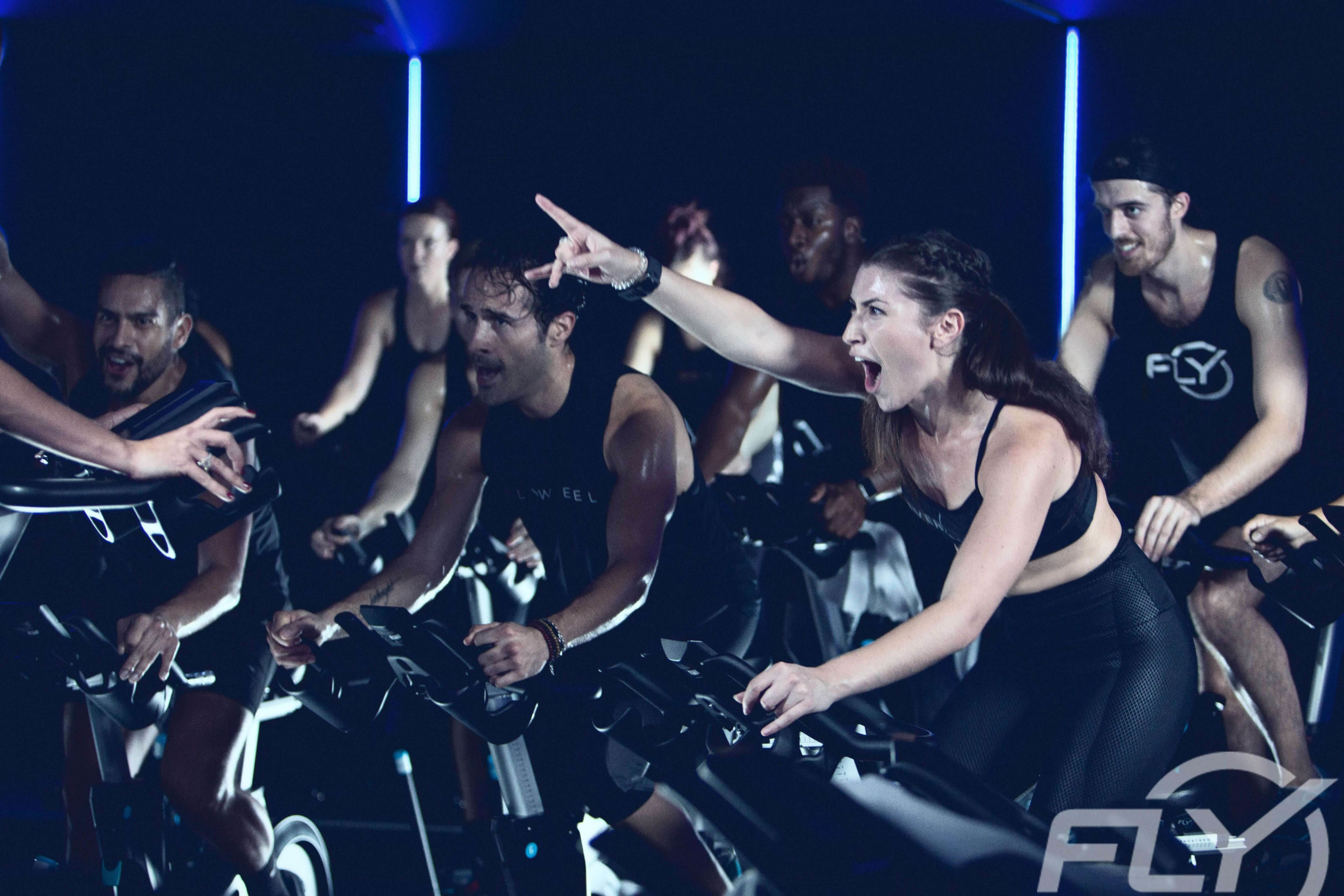
Sign of the times?
As a final thought, let’s return to my very first question: is the TSI/Flywheel deal a sign of things to come? Canarick thinks not: “It’s a question of scale really. New York Sports Club is perhaps uniquely regional, with clubs predominantly in New York, Boston, Philadelphia, Washington DC. And that matched well with Flywheel.
In the shifting dynamics of this marketplace, it’s a smart strategy to offer value
“The other major big box brands are mostly national. It would be hard for them to find a partner to do something similar, because the franchises aren’t really an option – that would involve overly complex negotiations with individual franchisees.
“Equally, I can’t think of any bigger boutique brands who would want to do something like this. Not Barry’s. Not SoulCycle – it’s part of the Equinox family anyway, but I can’t see it going for a cross-selling value proposition. Not Solidcore, which has become one of the bigger corporate store US players following recent strong growth.
“I see this as a one-off tactical decision, and it remains to be seen if it will work for the two brands. But in the shifting dynamics of this marketplace – towards at-home and away from highly-priced studio-based classes – I think it’s a smart strategy to offer value.”
UPDATE: This article was correct at the time of publishing on 24 March 2020. However, on 6 April 2020, reports confirmed that Town Sports International Holdings Inc. had terminated its agreement to purchase Flywheel Sports Inc.
Music maestros
When creating playlists for your workouts, what music rights do you need to secure?
JJ: We have to clear both the publishing and master rights. The underlying composition – lyrics, sheet music, melody and everything else that goes into writing the song – is the publishing side. The master rights belong to the label – the record company that paid the artist to come in and make the recording.
I look after the major labels and have relationships with Sony, Warner and Universal. We request tracks in batches and the labels give us feedback: yes, no, maybe but there are additional side artists who need to be cleared. We feed that back to the programme directors, they make a few more track suggestions if needed, and we keep working through until we have a confirmed track list.
It can take up to nine months to work through a contract for one song
KF: In addition to the major labels, we also touched about 295 independent labels last year. To some of them, I just send two or three emails a quarter, each with a list of songs, and they let me know if they can clear them – and that’s it done. But in this age of streaming, I’m often liaising with people I’ve never spoken to before, right through to “I’m the person making my music in my bedroom and I’m repping myself”. That’s quite cool – they’re always excited that their music is being heard and happy to make some money from it.
But it can be hard to get hold of people, as well as to work through the inevitable language barriers when you do get hold of them. At times, I even have to start from the beginning, explaining what group exercise is and where music fits in to that. It can take up to nine months to work through a contract for one song.
What’s your approach to selecting music for each new quarterly release?
JJ: Around 12 weeks out from filming, the programme directors will provide us with their wish list of songs.
KF: Taking BODYPUMP as an example, we need 12 songs for each release, but we might start with a list of 40, working out which label they all belong to.
JJ: That can be tricky: there might be one label that controls the master, but we also need to get permission from the featured artist.
KF: Or there might be one label that controls the song in North America and another that controls the song for the rest of the world. We have to speak to both labels, because we need our instructors across the globe to be able to use the same song.
JJ: There might be a few songs we immediately know we won’t be able to license, which can be for a number of reasons: banned artists, uncleared samples that we know the label won’t approve, bootleg remixes from YouTube that are free to download but not an official, licensable song.
KF: That said, the labels sometimes keep working away at it behind the scenes. There was one song we eventually got into BODYPUMP – Company, by Baauer – that we had requested about three times. We could never use it, because it had an uncleared sample, but about a year later the label came back to us to say they had cleared it. We don’t always still want a track by then – they don’t always stay fresh and we might have found an alternative – but it just shows that things do sometimes come good.
SOMETIMES WE CREATE OUR OWN TRACKS, TO ACCOMPANY A SPECIFIC MOVE FOR EXAMPLE
If you use a track across lots of programmes, do you just pay once?
JJ: Sadly not. If we’re using a track in two different programmes, we have to pay twice – there are no bulk purchase discounts in music. If anything, negotiations are harder the second time around: they know we’re super keen, so we often struggle to get a track at the same price we purchased it for originally.
Do you ever get approval for one programme and not for another?
JJ: It can happen from time to time. Sometimes artists may not be willing to grant rights across multiple programmes, while some may have requirements that one programme meets but another doesn’t, so we will be restricted to just the one.
KF: We keep a comprehensive list of limitations, so we can let the programme directors know straight away if they can or can’t use a song or – if they’re going to use it – what they can and can’t do with it.
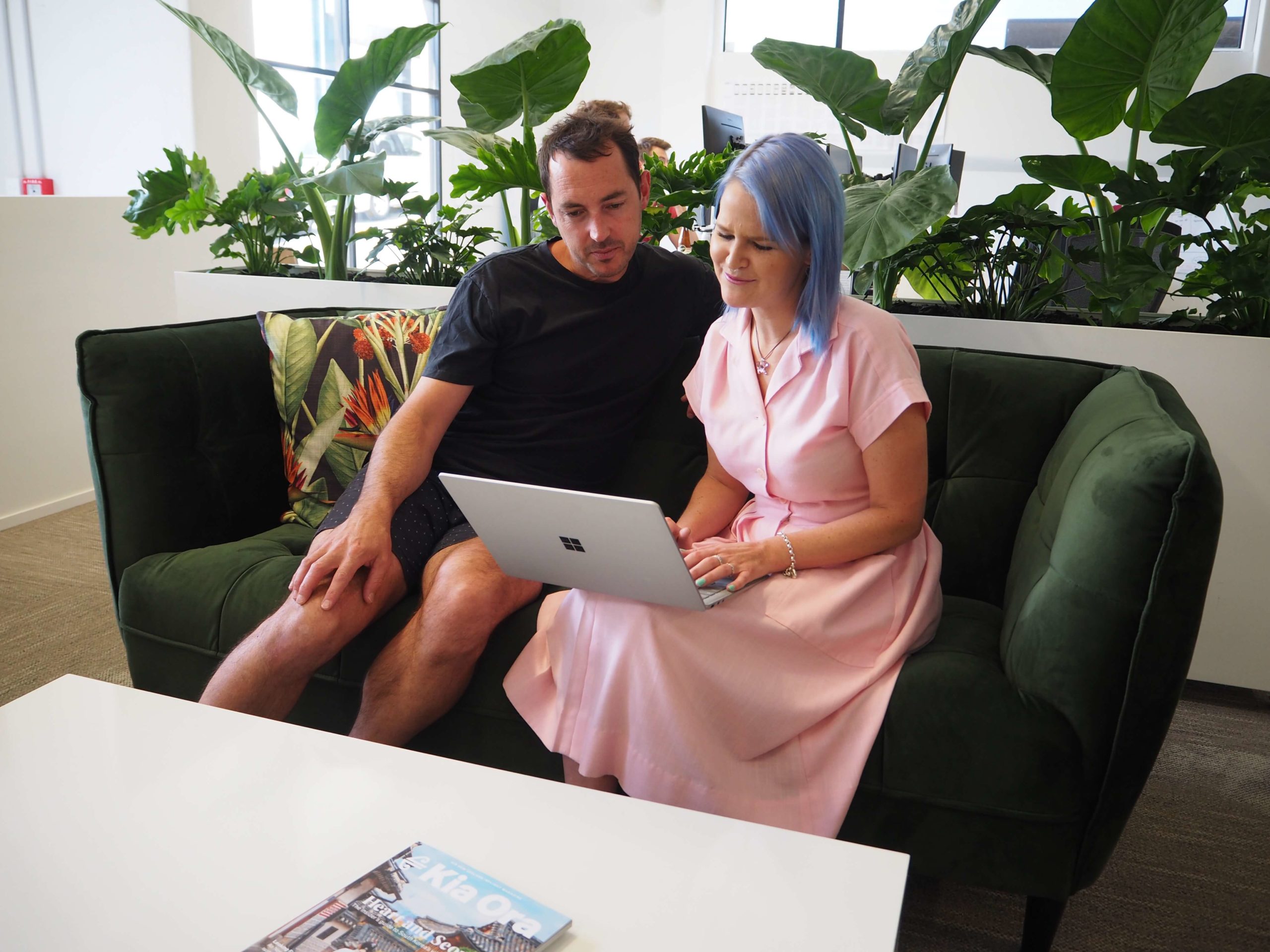
What are the original tracks that feature in your playlists?
JJ: Les Mills Originals are pieces of music that we commission. We work with music producers to develop these tracks and we control the rights to them.
Sometimes artists approach us with their music; if they fit our requirements, we purchase them and develop them as LMOs. Sometimes we need to create tracks for very specific requirements: to accompany a particular move, for example, or where we need added features such as voiceovers or countdowns in the track.
Once all this is done, is there anything left for the clubs to negotiate?
JJ: There is, yes. For all the licensed, original artist recordings we use in our live class playlists, we secure the necessary rights to include the music on those playlists. However, individual clubs will still need to obtain a Public Performance licence from the relevant local societies to play the music in their club.
Essentially, to play any music in their facilities, clubs need to take care of two different licences: public performance of the master, and public performance of the musical composition. It’s down to each venue to secure the correct public performance licences.
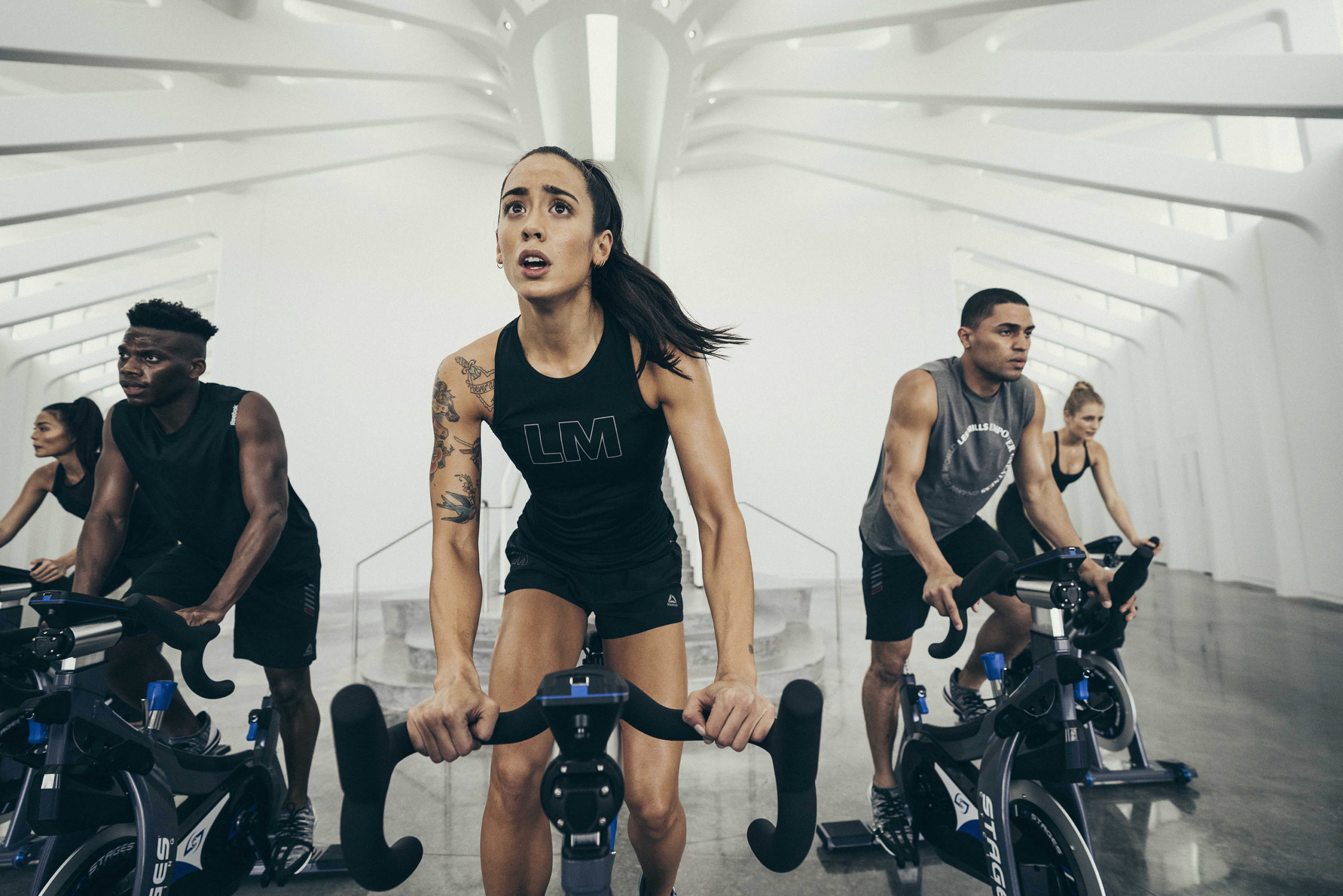 How much do the licensing rules vary from country to country?
How much do the licensing rules vary from country to country?
JJ: From our side of things – negotiating the publishing and master rights – the process is pretty standard. We’ll be dealing with different people for different countries, but the principles are the same.
However, Public Performance licensing for fitness facilities varies from country to country. These licences are issued by local copyright collection societies, so how clubs and facilities are charged depends on where they are in the world. In some countries, there’s a single fee that covers both the public performance licences, but in some situations, it’s charged based on a club’s floor area or number of classes.
The secret is to find tracks that are unique to the essence of the programme
Another example: in the UK, a club will need to obtain a public performance licence from both the local society representing the record labels (PPL in the UK) and the local society representing the publisher/writers – that is, the owners of the rights to the lyrics/composition (PRS in the UK). In the US, on the other hand, the requirement to obtain a public performance licence in relation to original artist recordings does not exist – the only requirement is to obtain a public performance licence from the societies representing the publishers/writers.
Clubs and facilities should make sure they are aware of what’s required in their location, and be in touch with their local society or societies to ensure they are covered.
The final thing to mention here is that all of this applies to our live class playlists. For Les Mills Virtual, we only use cover recordings that we own. This means that, for our virtual classes, a club needs only obtain a public performance licence from the local society representing the publisher/writers.
What do you love most about your job?
JJ: Lots of things!
I love it when, from time to time, our programme directors come to us with a track wish list and I ask myself: ‘How on earth are they going to make that work?’ Then, a few months later, that track will be playing during my workout and I have that ‘a-ha’ moment when I experience how it works with the choreography and I can see all the other participants around me enjoying it too.
I’m also grateful to be able to work for a company that influences people’s lives in such a positive way.
How do you create the perfect cycling class playlist?
Glen Ostergaard, programme director for the Les Mills cycle classes RPM and SPRINT, is the master when it comes to creating the perfect cycling class playlist.
Asked what he believes it takes to put a great playlist together, Glen’s response is that it all comes down to having the mental space and time to be creative with each release: “The secret is to find tracks that are unique to the essence of the programme, and there’s a bit of secret science to it. At the very basic level, the songs need to be uplifting and fun, and from a variety of musical genres.”
With that variety in mind, Glen doesn’t have one personal favourite type of music: “I always love the music I’m working with for the current releases, as that is what’s freshest, most current and what I find most inspiring at the time.”
